Faculty
and Senior Researcher Profiles
 Stuart
Allen
Stuart
Allen
Research
Associate
sfa@cs.cornell.edu
http://www.cs.cornell.edu/info/people/sfa/
Stuart Allen received a bachelor’s degree in computer science from the University of New Orleans in 1978, and a Ph.D. in computer science from Cornell in 1987. He has held several positions at Cornell since, and is currently a research associate in CS.
Allen’s principal interest is in making computer-manipulable formal data an adjunct to, and ideally a medium for, precise human expression, especially argument. This involves the design, justification, and employment of practical formal systems and notations.
The bulk of his work has been in relation to the PRL project (http://www.nuprl.org), which has traditionally focused on constructive theory of types and proof by means of tactics. In addition to theory, application, and explanation of type theory–based practice, he has been interested in formalizing and exploiting conventional mathematical notations, as well as the development of interfaces for user immersion in bodies of formal data.
Most recently, Allen’s efforts (as part of the PRL project) have been directed at designing methods for implementing digital collections grounded in formal material, especially proof, emphasizing theoretical neutrality and anticipating the coexistence of material with distinct, possibly conflicting, formal bases, entailing the need for strict yet extensible logical accounting.
 William
Y. Arms
William
Y. Arms
Professor
wya@cs.cornell.edu
http://www.cs.cornell.edu/wya
William Arms received his B.A. degree in mathematics from Oxford University in 1966, and his M.Sc. (Econ.) from the London School of Economics in 1967. He obtained his doctorate (D.Phil.) in operational research from the University of Sussex in 1973. He has been a professor in CS since 1999, and director of the Information Science Program since 2002.
Arms’s interests concentrate on Web information systems, digital libraries, and electronic publishing. These fields integrate methods from many disciplines, so that the work ranges from technical topics, such as distributed computing and information representation, to the economic and social aspects of change. His book, Digital Libraries, was published by the M.I.T. Press in winter 2000. This year, the Cornell Digital Libraries Research Group received a major grant to build the core system for the NSF’s new digital library for science, mathematics, engineering, and technology education. This is likely to be the largest and most heterogeneous digital library yet attempted. One of Arms’s principal interests is the change in scientific publication as online materials replace printed journals as the primary means of creating, storing, and distributing research information.
Professor Arms has recently completed a term as chair of the Association for Computing Machinery (ACM) Publications Board. He is a member of the M.I.T. Press Management Board, and a member of a strategic-planning committee of the American Physical Society.
Selected Publications
“What are the Alternatives to Peer Review? Quality Control in Shcolarly Publishing on the Web". Journal of Electronic Publishing 8(1) (August, 2002).
“A Spectrum of Interoperability. The Site for Science Prototype for the NSDL”. D-Lib Magazine, 8(1) (January, 2002). (With D. Hillman, C. Lagoze, D. Krafft, R. Marisa, J. Saylor, C. Terrizzi, and H. Van de Sompel) http://www.dlib.org/dlib/january02/arms/01arms.html.
“Uniform Resource Names: Handles, PURLs, and Digital Object Identifiers”. Communication of the ACM 44(5) (May 2001): 68.
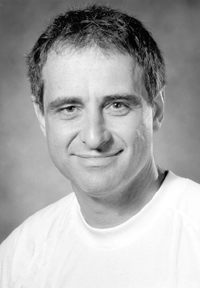 Graeme
Bailey
Graeme
Bailey
Professor
bailey@cs.cornell.edu
http://www.cs.cornell.edu/people/bailey
Graeme Bailey received a bachelor’s degree in mathematics in 1973, and a M.Sc. in pure mathematics in 1974, from the University of Birmingham. He obtained a Ph.D. in pure mathematics (low-dimensional topology and combinatorial group theory) in 1977 from the University of Birmingham as well. He has been a professor in CS and an adjunct professor in Cornell’s Department of Mathematics since 1988. He is the director of the College of Engineering’s Master of Engineering degree program in computer science.
Originally working in low-dimensional topology and combinatorial group theory, through an odd mixture of circumstances Bailey has become actively involved in research in mathematics and medicine. One of two ongoing research projects in this area is the modeling of lung inflation, together with a research group at the Class One Trauma Center at the Upstate Medical University, in Syracuse, N.Y. This is in the early stages of a program to extend to various pathologies affecting elasticity and aimed towards effective clinical treatments. The group, having made some significant advances in answering questions that had remained unsolved for more than thirty years, is now in the process of trying to obtain reliable mathematical models. This involves building computer simulations of dynamic-packing results under constrained perturbations and deformations. The other project is in understanding deformations of transmembrane proteins used in cell-signaling processes. This is a carefully constrained version of the protein-folding problems that have been exciting the mathematical-biology community in recent years; the application of a topological viewpoint in collaborating with molecular pharmacologists and structural biologists has already yielded some intriguing insights.
Bailey is the recipient of the Kenneth A. Goldman ’71 Excellence in Teaching Award for 2000, and the Kendall S. Carpenter Memorial Advising Award for 2002.
 Kenneth
P. Birman
Kenneth
P. Birman
Professor
ken@cs.cornell.edu
http://www.cs.cornell.edu/ken/
Ken Birman obtained a bachelor’s degree in computer science at Columbia University in 1978 and a Ph.D. in computer science at the University of California at Berkeley in 1981. He joined the CS faculty in 1982.
Birman’s research is concerned with reliability and security in modern networked environments. In past work on the Isis system, his software became a central part of the New York Stock Exchange and Swiss Stock Exchange (in both settings, Isis runs the core messaging component used to distribute new stock quotes and information about trades reliably and securely), the French air-traffic control system (Isis is used to keep clusters of three to five controller workstations synchronized, and handles failures), the U.S. Navy’s Aegis warship’s radar system, and other mission-critical computer networks.
Birman’s current focus is on a new system called “Astrolabe”, which was developed as part of a DARPA–funded Spinglass effort (http://www.cs.cornell.edu/Info/Projects/Spinglass). Astrolabe is like a network-wide database in which each computer or component contributes a live tuple. As data changes, Astrolabe propagates the updates. The system uses a form of dynamically materialized view to continuously compute summaries of the picture of the network as a whole. This results in a powerful new tool for distributed monitoring, management, control, and live collaboration. A second part of Spinglass is concerned with reliable multicast. Birman’s group has developed a scalable multicast protocol that gives probabilistic consistency guarantees, and integrated it with Astrolabe. Underlying both systems is a class of reliable peer-to-peer communication protocols that are extremely scalable and provide probabilistic reliability techniques. The approach permits the development of systems that work as well with ten thousand computers as they do with just ten.
Birman was named an ACM Fellow in 1999 and won the Stephen ’57 and Marilyn Miles Excellence in Teaching Award in 2000. He was editor in chief of ACM Transactions on Computer Systems from 1993 to 1997, and has served on a number of university committees. Birman is chairman of the Responsible Conduct of Research Committee and is a member of the Founding Committee for the CIS faculty; the Engineering College Policy Committee; and the IP Advisory Council for the Cornell Research Foundation.
Selected Publications
“Bimodal Multicast”. ACM Transactions on Computer Systems 17(2) (May, 1999): 41–88. (With M. Hayden, O. Ozkasap, Z. Xiao, M. Budiu, and Y. Mirsky)
Building Secure and Reliable Network Applications. Manning Publications and Prentice Hall (December, 1996).
“Software for Reliable Networks”. Scientific American 274(5) (May, 1996): 64–69. (With R. van Renesse)
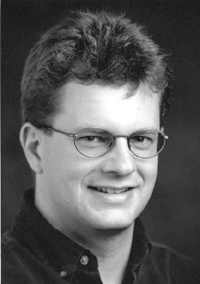 Martin
Burtscher
Martin
Burtscher
Assistant
Professor
Member of the School of Electrical and Computer Engineering
and
the Graduate Field of Computer Science
burtscher@csl.cornell.edu
http://www.csl.cornell.edu/~burtscher/
Martin Burtscher received his Ph.D. degree in computer science from the University of Colorado at Boulder in 2000 and his B.S./M.S. degree in computer science from the Swiss Federal Institute of Technology (ETH) Zurich in 1996. He is an assistant professor in ECE at Cornell.
His research interests include high-performance microprocessor architecture, instruction-level parallelism, and compiler optimizations.
High-end microprocessors rely on a variety of predictors for good performance. Future CPUs will likely need even more predictors to meet the continuing demand for more and more processing power. Designing, evaluating, and improving such predictors is an important focus of Burtscher’s research.
Ongoing projects include locating novel domains that can benefit from prediction, adding compiler support to aid and simplify the prediction hardware, devising means to reduce predictor sizes and power consumption without compromising performance, discovering as-of-yet unobserved patterns to build new predictors, and using value-prediction techniques to enhance branch-prediction accuracy and data-compression rates.
Selected Publications
“Hybrid Load-value Predictors”. IEEE Transactions on Computers 51(7) (July, 2002). (with B. Zorn)
“Delphi: Prediction-based Page Prefetching to Improve the Performance of Shared Virtual Memory Systems”. International Conference on Parallel and Distributed Processing Techniques and Applications (June, 2002). (With E. Speight)
“Static Load Classification for Improving the Value Predictability of Data-cache Misses”. Conference on Programming Language Design and Implementation (June, 2002). (With A. Diwan and M. Hauswirth)
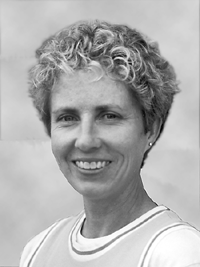 Claire
Cardie
Claire
Cardie
Associate
Professor
cardie@cs.cornell.edu
http://www.cs.cornell.edu/home/cardie/
Claire Cardie obtained a B.S. in computer science from Yale University in 1982 and an M.S. and Ph.D. in computer science at the University of Massachusetts at Amherst in 1994. She has been a CS faculty member at Cornell since 1994.
Cardie’s research is in the areas of natural language processing and machine learning. In particular, her group has focused both on building systems for large-scale natural language processing tasks like information extraction, question-answering, and multidocument summarization, and on developing corpus-based machine learning techniques to address underlying theoretical problems in the syntactic and semantic analysis of natural language.
Cardie is a recipient of a NSF Faculty Early Career and Development Award (1996–2000) and was program chair for the Second Conference on Empirical Methods in Natural Language Processing in 1997. She has been secretary of, the Association for Computational Linguistics Special Interest Group on Natural Language Learning (1999–2001), and is currently serving a four-year term as secretary of the North American Association for Computational Linguistics.
Selected Publications
“A Cognitive Bias Approach to Feature Selection and Weighting for Case-based Learners”. Machine Learning 41(1) (2000): 85–116.
“Error-driven Pruning of Treebank Grammars for Base Noun Phrase Identification”. In Proceedings of the Annual Conference of the Association for Computational Linguistics and Association for Computational Linguistics (1998): 218–224. (With D. Pierce)
“A Case-based Approach to Knowledge Acquisition for Domain-Specific Sentence Analysis”. In Proceedings of the Eleventh National Conference on Artificial Intelligence (AAAI Press/M.I.T. Press, 1993): 798–803.
 Rich
Caruana
Rich
Caruana
Assistant
Professor
caruana@cs.cornell.edu
http://www.cs.cornell.edu/~caruana/
Rich Caruana obtained a Ph.D. in computer science in 1998 at Carnegie Mellon University. Currently he is an assistant professor in CS, where he does research in machine learning, data mining, and bioinformatics. His current focus is on inductive transfer, medical-decision making, learning rankings, and adaptive clustering.
Inductive transfer is a subfield of machine learning that aims to achieve better performance by learning many related problems simultaneously—surprisingly, sometimes it is easier to learn 100 problems at the same time than to learn any one of them in isolation. Learning rankings is an exciting new area in machine learning that has important applications in information retrieval and medicine. Caruana is developing algorithms that learn rankings for problems in medical-decision making where it may be difficult to assess absolute risk for a patient, but easier to learn to order patients by relative risk. He developed the first machine-learning algorithm for rankings in 1996.
Caruana’s work in clustering is a new focus for him. His interest in clustering arose from limitations he discovered when applying traditional clustering methods to the protein-folding problem with colleagues in bioinformatics. A theme that runs through all of Professor Caruana’s work is the importance of developing methods that are effective on real-world problems. He likes to mix algorithm development with applications work to insure that the methods are useful.
Professor Caruana helped create a new subfield of machine learning called inductive transfer by publishing the first paper on multitask learning. In 1995 he developed the first machine-learning algorithm specifically designed to learn rankings. This method outperformed a dozen other learning methods in a multi-institutional pneumonia risk–prediction project. In 2000–2001. Caruana led a team of researchers that developed the first automated system for the early detection of bioterrorist releases of anthrax. The system applies data mining to consumer purchases in supermarkets to look for unexplained increases in the sales of products such as analgesics and cough syrup.
Selected Publications
“Multitask Learning”. Machine Learning 28 (1997): 41–75.
“Using the Future to `Sort Out’ the Present: Rankprop and Multitask Learning for Medical Risk Evaluation”. Advances in Neural Information Processing Systems 8 (1996). (With S. Baluja and T. Mitchell)
“Early Statistical Detection of Anthrax Outbreaks by Tracking Over-the-counter Medication Sales”. Proceedings of the National Academy of Sciences 99(8) (April, 2002): 5237–5240. (With A. Goldberg, G. Shmueli, and S. Feinberg)
 L.
Paul Chew
L.
Paul Chew
Senior
Research Associate
chew@cs.cornell.edu
http://www.cs.cornell.edu/info/people/chew/chew.html
Paul Chew received his Ph.D. in computer science from Purdue University in 1981. He served as a faculty member at Dartmouth College until 1988 when he joined the CS at Cornell as a senior research associate.
Chew’s primary research interest is in geometric algorithms with an emphasis on practical applications. These practical applications have included placement, motion planning, shape comparison, vision, sensing, mesh generation, molecular matching, and protein shape–comparison. The work on protein shape–comparison has been used as part of the evaluation scheme for CAFASP (Critical Assessment of Fully Automated Structure Prediction), a “competition” held every two years to evaluate the performance of fully automatic servers for protein-structure prediction. Chew developed “backwards analysis”, a method now widely used for analyzing randomized algorithms. Chew’s work on mesh generation has been motivated by the finite-element method, a technique for finding approximate solutions to partial differential equations. The first step of this method is to create a mesh, i.e., to divide the given problem region into simple shapes called elements. For complex geometries mesh generation can be difficult. Chew has developed methods for automatically generating a high-quality mesh. This work is being used in a large, multidisciplinary project: developing adaptive software for field-driven simulations.
Chew is the associate editor for Journal of the Pattern Recognition Society.
Selected Publications
“Unit-vector RMS (URMS) as a Tool to Analyze Molecular Dynamics Trajectories”. Proteins: Structure, Function and Genetics 37 (1999): 554–564. (With K. Kedem and R. Elber)
“Voronoi Diagrams of Lines in 3-space Under Polyhedral Convex Distance Functions”. Journal of Algorithms 29(2) (1998): 238–255. (With K. Kedem, M. Sharir, B. Tagansky, and E. Welzl)
“Constrained Delaunay Triangulations”. Algorithmica 4(1) (1989): 97–108.
 Thomas F. Coleman
Thomas F. Coleman
Professor
Director, Cornell Theory Center
Director, CTC–Manhattan
coleman@cs.cornell.edu
http://www.tc.cornell.edu/~coleman/
Thomas F. Coleman obtained his bachelor’s degree in mathematics in 1975, and his master’s in mathematics in 1976, both from the University of Waterloo. He received a Ph.D. in mathematics from Waterloo as well, in 1979. He is currently a professor of computer science and applied mathematics at Cornell, and also the director of both the CTC, a center for the support of large-scale computational science, and CTC–Manhattan, a computational finance–consulting center in New York City.
With colleagues Shirish Chinchalkar, Yohan Kim, Yuying Li, Peter Mansfield, and Arun Verma, Coleman is developing a variety of tools and methods for computational finance in the areas of portfolio management and options pricing (and hedging). Several Ph.D. students in the Center for Applied Mathematics are also involved in this work: Cristina Patron, Siddharth Alexander, Katharyn Boyle, and Changhong He. In their most recent academic work: “ Discrete Hedging Under Piecewise Linear Risk Minimization”, they propose a new optimization-based approach to hedging in an incomplete market.
Coleman’s specific interests include the computation of implied volatility surfaces from option prices, hedging techniques, index tracking, portfolio optimization, and the use of parallel computing techniques in computational finance.
Professor Coleman is a member of the Cornell Task Force on Genomics, and the program committee for the Center for Applied Mathematics. He is the author of two books on computational mathematics, the editor of four proceedings, and has published over sixty journal articles. He was chair of the SIAM Activity Group on Optimization (1998–2001) and serves on the editorial boards of numerous professional journals.
Selected Publications
“Reconstructing the Unknown Local Volatility Function”. Journal of Computational Finance 2(3) (Spring, 1999): 77–102. (With Y. Li and A. Verma)
“The Efficient Computation of Sparse Jacobian Matrices using Automatic Differentiation”. SIAM Journal on Scientific Computing 19(4) (1998): 1210–1233. (With A. Verma)
“Large Sparse Numerical Optimization”. Lecture Notes in Computer Science 165 (May, 1984): 105 p.
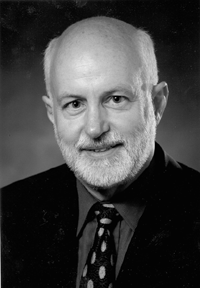 Robert
Constable
Robert
Constable
Professor
Dean for Computing and Information Science
rc@cs.cornell.edu
http://www.cs.cornell.edu/home/rc/
Robert L. Constable is the Dean for Computing and Information Science, and a professor in CS. He obtained his Ph.D. in mathematics from the University of Wisconsin in 1968. He served as CS chair from 1994 to 1999. He was also acting chair from 1993 to 1994.
Constable’s research has focused on building a system called logical programming environment (LPE). It provides substantial automation in the design, coding, verification, and evolution of large software systems. Generally an LPE will integrate programming languages and logics. In his group’s case, they integrate the ML programming language and a programming logic based on type theory. Reasoning about ML programs is founded on type theoretic semantics for ML. The LPE also integrates a compiler, a theorem prover, and a formal digital library. Constable’s group uses the latest version of Nuprl as the prover.
He is also working with others to build the formal digital library component of the LPE that will allow interactive access to theorems and proofs from Nuprl, MetaPRL, PVS, and other major theorem provers. The library includes over ten thousand theorems. Many of these are used in system verification, but a large number are from general mathematics. These general theorems are a valuable resource. The group is funded by the Office of Naval Research (ONR) to further develop and explore the concept of a formal digital library of constructive mathematics built around these theorems. Their theorem provers are used in a variety of other projects as well, including the creation of formal courseware by S. Allen, the translation of formal proofs into natural language by Amanda Holland–Minkley, the automatic analysis of the computational complexity of higher-order programs by Ralph Benzinger, and efficient reflection being designed and implemented by Eli Barzilay.
Constable is the director of the PRL Project, and a member of the Cognitive Studies executive committee; the applied math policy committee; the Association for Symbolic Logic Council; and the LICS General Committee. He serves as editor for the Journal of Logic and Computation; Formal Methods in System Design; and the Journal of Symbolic Computation.
Selected Publications
“Computational Complexity and Induction for Partial Computable Functions in Type Theory” In Reflections: A Collection of Essays in Honor of Solomon Feferman, Association for Symbolic Logic (2001). (With K. Crary)
“Constructively Formalizing Automata”. In Proof, Language and Interaction: Essays in Honour of Robin Milner, M.I.T. Press, 2000: 213–238 (2000). (With P. Jackson, P. Naumov, and J. Uribe)
“Nuprl’s Class Theory and its Applications”. In Foundations of Secure Computation, F. L. Bauer and R. Steinbruggen, eds. IOS Press, 2000: 91–115 (2000).
 Alan
J. Demers
Alan
J. Demers
Professor
ademers@cs.cornell.edu
Alan J. Demers received his bachelor’s degree in physics from Boston College in 1970. He obtained his Ph.D. in computer science from Princeton University in 1975. He is a professor in CS, and has been at Cornell since 1982. Prior to his arrival at Cornell, Demers worked for the Oracle Corporation as an architect, and at Xerox PARC in Palo Alto as a principal scientist.
Demers’s research concerns aspects of weakly consistent data replication in databases and distributed systems. With Ken Birman, Robbert van Renesse, Johannes Gehrke, and others, he is studying randomized “gossip protocols”. Such protocols are highly fault-tolerant and, when properly designed, extremely scalable as well. The group is studying convergence properties of several flat and hierarchical versions of the basic protocols tailored to specific application requirements.
More specifically, Demers’s focus is approximate evaluation of aggregate queries in such a system. He is studying age distributions of gossiped data in order to prove probabilistic bounds on the quality of aggregate query results. Alternatively, the group can use this approach to bound the latency required to probabilistically guarantee a client-specified degree of consistency. They are considering classes of “resource location” or “anomaly detection” problems, in which query results are site-specific and depend on distance and subsumption. Such problems can have efficient and highly scalable solutions using gossip partner–choice distributions based on the distance between sites.
Finally, they are studying graph constructions for which flooding or deterministic gossip partner–choices can be used, leading to reduced overhead while still retaining most of the desirable properties of randomized gossip.
The above is related to Demers’s previous work on the Clearinghouse and Bayou projects at Xerox PARC. He is also doing work supported by Oracle on asynchronous update-anywhere replication in a more traditional database setting. This involves algorithms for scheduling/reordering update propagation between sites to improve throughput while preserving eventual consistency and bounded inconsistency during propagation.
Selected Publications
“Spatial Gossip and Resource Location Protocols”. In Proceedings of the Thirty-third ACM Symposium on Theory of Computing (July, 2001): 163–172. (With D. Kempe and J. Kleinberg)
“Logarithmic Harary Graphs”. ICDS International Workshop on Applied Reliable Group Communication, Phoenix, Arizona (April, 2001). (With K. Jenkins)
“Flexible
Update Propagation for Weakly Consistent Replication”. In Proceedings
of the Sixteenth ACM Symposium on Operating System Principles (1997).
(With K. Petersen, M. Spreitzer, D. Terry, and M. Theimer) http://www.parc.xerox.com/csl/projects/bayou/pubs/sosp-97/AE.ps
 Ron
Elber
Ron
Elber
Professor
ron@cs.cornell.edu
http://www.cs.cornell.edu/ron/
Ron Elber obtained a bachelor’s degree in chemistry and physics in 1981, and a Ph.D. in theoretical chemistry in 1984 at the Hebrew University of Jerusalem. He was a postdoctoral fellow in theoretical biophysics from 1984 to 1987 at Harvard University. Ron was on the chemistry faculty of the University of Illinois (1987–1992) and on the chemistry and biology faculty at Hebrew University of Jerusalem (1992–1999). Since 1999 he has been on the CS faculty, where he is currently a full professor. Ron is also a faculty member of the Department of Biological Statistics and Computational Biology.
Ron’s research is in computational biology and bioinformatics. His group is developing novel tools (MOIL) to simulate dynamics of biological macromolecules. His current research focuses on algorithms to extend the time scales of simulations, and to study complex processes such as the kinetics of protein folding. Ron’s techniques for path following and enhanced sampling are in wide use and motivated the development of related algorithms. His bioinformatic investigations focus on protein annotation, using sequence-to-structure matches (LOOPP). LOOPP linked a gene that influences the size of the tomato fruit with a human protein that controls cell growth and may cause cancer.
Ron received the Stein award for his Ph.D. studies (1984), and the Camille and Henry Dreyfus New Faculty Award (1987–1990). He was a University of Illinois Scholar (1991–1992). Ron received the Alon new faculty award (1992–1994), and the Bergman award (1994).
Selected Publications
“Cloning, Transgenic Expression and Function of fw2.2: a Quantitative Trait Locus Key to the Evolution of Tomato Fruit”. Science 289 (July, 2000): 85–88. (With Anne Frary, T. Nesbitt, Amy Frary, S. Grandillo, E. van der Knaap, B. Cong, J. Liu, J. Meller, K. Alpert, and S. Tanksley)
“Anharmonic Wavefunctions of Proteins: Quantum Self-consistent Field Calculations of BPTI”. Science 268 (1995): 1319–1322. (With A. Roitberg, R. Gerber, and M. Ratner)
“Multiple Conformational States of Proteins: A Molecular Dynamics Analysis of Myoglobin”. Science 235 (1987): 318–321. (1987). (With M. Karplus)
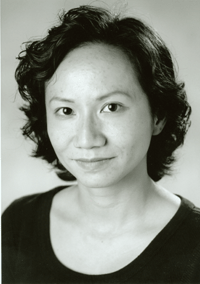 K-Y.
Daisy Fan
K-Y.
Daisy Fan
Assistant
Professor
dfan@cs.cornell.edu
http://www.cs.cornell.edu/~dfan/
Daisy Fan obtained her B.Sc. and M.Sc. degrees in civil engineering at the University of Manitoba in 1994 and 1997, respectively, and her Ph.D. degree in civil and environmental engineering at Cornell in 2002. She is currently an assistant professor in CS. Her research interests include the application of systems-analysis techniques for water-resources and environmental problems. Problems she has investigated include optimal control of multiple-reservoir operation using stochastic dynamic programming and river-basin water-quality management. She teaches CS 100, and with Professor David Schwartz, develops the academic-excellence workshops that are associated with the programming courses.
Fan is the director of the Summer College Explorations in Engineering Seminar for high school students. She actively participates in outreach initiatives, including Cornell’s CURIE Academy, which showcases engineering to high school girls.
Fan is a recipient of a Graduate Teaching Assistant Award in CS (2000), a New York State American Water Works Association Russell L. Sutphen Scholarship (2000), and a Cornell School of Civil and Environmental Engineering John E. Perry Teaching Assistant Prize (1999).
Selected Publications
“Regression Dynamic Programming for High-Dimensional Continuous-State Problems”. In preparation for submittal to Operations Research. (With C. Shoemaker and D. Ruppert)
“Stochastic Multiple-reservoir Optimization Using Regression Dynamic Programming”. In Proceedings of World Water and Environmental Resources Congress, (May, 2001).
“Regression Dynamic Programming for Multiple-reservoir Control”. In Proceedings of the ASCE 2000 Joint Conference on Water Resources Engineering and Water Resources Planning and Management. (July, 2000). (With Christine Shoemaker and David Ruppert)
 Geri
Gay
Geri
Gay
Professor
CIS, joint with Communication
gkg1@cornell.edu
http://www.comm.cornell.edu/faculty/gay.html
Geri Gay is the director of the Human Computer Interaction Group (HCI Group) and a professor in Department of Communication. She received her Ph.D. from Cornell in 1985. The HCI Group is a research-and-development group whose members design and research the use of computer-mediated learning environments. Current research focuses on the use and design of PDAs for communication and collaboration (Intel®). Other research examines navigation issues, knowledge management, mental models and metaphors (NSF), knowledge representations, collaborative work and learning (NASA and AT&T Foundation), and system design of interactive computing systems.
Professor Gay teaches courses in computer-mediated communication, human–computer interaction, and the social design of communication systems. She was awarded the New York State Chancellor’s Award for Excellence in Teaching in 2001.
Selected Publications
Activity Centered Design: An Ecological Approach. Boston: M.I.T. Press. [in press] (With H. Hembrooke)
“The Effects of Wireless Computing in Collaborative Learning Environments”. International Journals of Human–Computer Interaction (2002). (With M. Stefanone, M. Martin–Grace, and H. Hembrooke)
Information Technologies in Evaluation; Social, Moral, Epistemological, and Practical Implications. Jossey–Bass Publishers (1999). (With T. Bennington)
 Johannes
Gehrke
Johannes
Gehrke
Assistant Professor
johannes@cs.cornell.edu
http://www.cs.cornell.edu/johannes/
Johannes Gehrke
obtained his Ph.D. in computer science at the University of Wisconsin
at Madison in 1999, and he has been an assistant professor in CS since
then.
Johannes's interests are in the areas of data mining, data stream processing,
and novel applications of distributed database technology. In his
current research, Gehrke is working on integrating complex querying capabilities
into wireless sensor networks and peer-to-peer networks, and he is developing
database techniques for high-speed data streams. His data mining
research includes privacy-preserving data mining, mining data streams,
theoretical foundations of data mining, and high-performance data mining
algorithms, and his group has developed some of the fastest known algorithms
for several important data mining tasks.
Professor Gehrke is a recipient of a National Science Foundation Career Award (2002), an IBM Faculty Award (2000 and 2001), and the Cornell College of Engineering James and Mary Tien Excellence in Teaching Award (2001).
Selected Publications
Database Management Systems, third ed. (2002). McGraw Hill. (With R. Ramakrishnan)
“DualMiner: A Dual-pruning Algorithm for Itemsets with Constraints". In Proceedings of the Eighth ACM SIGKDD International Conference
“Bias Correction in Classification Tree Construction”. In Proceedings of the Seventeenth ICML (ICML 2001), Williams College, Williamstown, MA (June, 2001). (With A. Dobra)
 Paul
Ginsparg
Paul
Ginsparg
Professor
CIS, joint with Physics
ginsparg@cs.cornell.edu
http:/www.physics.cornell.edu/profpages/Ginsparg.htm
Paul Ginsparg received his A.B. in physics from Harvard University in 1977 and his Ph.D. in physics from Cornell in 1981 (Quantum Field Theory, thesis advisor: Kenneth G. Wilson). He was in the Harvard Society of Fellows from 1981–84, and a junior faculty member in the Harvard physics department from 1984–90. From 1990–2001, he was a technical staff member in the theoretical division at the Los Alamos National Laboratory.
Ginsparg came to Cornell in 2001, where he holds a joint appointment with the Department of Physics and the Faculty of CIS. He has been an A. P. Sloane Fellow and a DOE Outstanding Junior Investigator, and has held visiting positions at C.E.N. Saclay, France, Princeton University, Stanford Linear Accelerator Center, the Institute for Advanced Studies, Princeton, the Institute for Theoretical Physics at the University of California at Santa Barbara, the Mathematical Science Research Institute at University of California at Berkeley, and at Hebrew University of Jerusalem. In 1991, Ginsparg initiated the “e-print arXiv” as a new form of communications-research infrastructure for physics.
Ginsparg’s current research in information science investigates the optimal combination of automated text classification, data mining, machine learning, human–computer interaction, quantum field theory, and related techniques for use in research-communications infrastructure.
Selected Publications
“A Remnant of Chiral Symmetry on the Lattice”. Physical Review D25 (1982): 2649. (With K. G. Wilson)
“2D Gravity + 1D Matter”. Physics Letters B240 (1990): 333. (With J. Zinn–Justin)
“Winners and Losers in the Global Research Village”. In Proceedings of “Electronic Publishing in Science”, Sir R. Elliot and D. Shaw, eds. ICSU Press (1996).
 Carla
P. Gomes
Carla
P. Gomes
Research
Associate
Director, IISI
gomes@cs.cornell.edu
http://www.cs.cornell.edu/gomes
Carla P. Gomes obtained a Ph.D. in computer science in the area of artificial intelligence and operations research from the University of Edinburgh in 1993. She also holds an M.Sc. in applied mathematics from the University of Lisbon.
Gomes is currently the director of the Intelligent Information Systems Institute (IISI) at Cornell. Her research has covered many areas in artificial intelligence and computer science, including planning and scheduling, integration of CSP and OR techniques for solving combinatorial problems, software agents, and algorithm portfolios.
Her current projects focus on the interplay between problem structure and computational hardness, the use of approximation methods in large-scale constraint-based reasoning systems, and applications of constraint-based reasoning and optimization in multi-agent optimal control, distributed wireless networks, and combinatorial auctions. She is the conference chair of the Eighth International Conference on Principles and Practice of Constraint Programming (CP-2002).
Selected Publications
“On the Intersection of AI and OR”. Journal of Knowledge Engineering Review 16(1) (2001). Cambridge Press.
“Algorithm Portfolios”. Artificial Intelligence 126 (2001): 43–62. (With B. Selman)
“Heavy-tailed Phenomena in Satisfiability and Constraint Satisfaction Problems”. Journal of Automated Reasoning 24(1/2) (2000): 67–100. (With B. Selman, N. Crato, and H. Kautz)
 Donald
Greenberg
Donald
Greenberg
Professor
Member of CIS
the Johnson School of Management
the Department of Architecture
and the Graduate Field of Computer Science
dpg@graphics.cornell.edu
http://www.graphics.cornell.edu/people/director.html
Dr. Greenberg received his Ph.D. from Cornell in 1968. He joined the Cornell faculty in 1968, with a joint appointment in the Departments of Architecture and Structural Engineering. His prior education consisted of both the architecture and engineering disciplines at Cornell and Columbia University. From 1960 to 1965, he served as a consulting engineer with Severud Associates, and was involved with the design of numerous building projects, including the St. Louis Arch, New York State Theater of the Dance at Lincoln Center, and Madison Square Garden. He has taught courses in structural analysis and design, architectural design, shell structures, reinforced concrete, and computer applications in architecture. In 1970–71, he was a guest professor at the ETH in Zurich, Switzerland, and he has been a visiting professor at Yale University.
Professor Greenberg’s research is primarily concerned with physically based image synthesis and with applying graphic techniques to a variety of disciplines. His specialties include color science, parallel processing, and real-time realistic-image generation. His application work includes medical imaging, architectural design, visual perception, and digital photography.
Greenberg is a member of Cornell’s faculty in the Johnson Graduate School of Management, CS, and the Department of Architecture, and a founding member of the Faculty of CIS. In recent years he has taught courses in computer graphics, computer-aided architectural design, digital photography, and disruptive technologies.
He is the director of the Program of Computer Graphics and the founding director of the NSF Science and Technology Center for Computer Graphics and Scientific Visualization. More than 300 articles on computer graphics have been published by the Program of Computer Graphics and many of Professor Greenberg’s students have been highly recognized in the field, including several who have received the SIGGRAPH Achievement Award and others who have received Hollywood Oscars.
Greenberg received the ACM Steven Coons Award in 1987, the highest honor in the graphics field; the National Computer Graphics Association Academic Award in 1989; the ASCA Creative Research Award in Architecture in 1997; and an honorary doctoral degree from New Jersey Institute of Technology.
Selected Publications
“Visions of Light”. Metropolis Magazine (by Jonathan Ringen): 138–144, 185–189 (June, 2002)
“Enhancing and Optimizing the Render Cache”. In Proceedings of the Thirteenth Eurographics Workshop on Rendering (June, 2002). (With B. Walter. G. Drettakis, and O. Deussen)
“Adaptive Shadow Maps”. In Proceedings of SIGGRAPH 2001 (August, 2001). (With R. Fernando, S. Fernandez, and K. Bala)
 Zygmunt
J. Haas
Zygmunt
J. Haas
Associate
Professor
Member of the School of Electrical and Computer Engineering
and the Graduate Field of Computer Science
haas@ece.cornell.edu
http://people.ece.cornell.edu/haas/
Zygmunt J. Haas received his Ph.D. degree from Stanford University in 1988 and subsequently joined AT&T Bell Laboratories, where he pursued research on wireless communications, mobility management, fast protocols, optical networks, and optical switching. In August of 1995, he joined the ECE faculty at Cornell.
Haas is an author of numerous technical papers and holds fifteen patents in the fields of high-speed networking, wireless networks, and optical switching. He has organized several workshops, delivered tutorials at major Institute of Electrical and Electronics Engineers (IEEE) and ACM conferences, and serves as editor of several journals and magazines, including the IEEE Transactions on Networking and IEEE Transactions on Wireless Communications. He has been a guest editor of three IEEE Journal of Selected Areas on Communications (JSAC) issues (“Gigabit Networks”, “Mobile Computing Networks”, and “Ad-Hoc Networks”). Haas is the chair of the IEEE Technical Committee on Personal Communications.
Haas’s current interests include: mobile and wireless communication and networks, personal communication service, and high-speed communication and protocols. He heads the Wireless Networks Laboratory (WNL) at Cornell, which performs research in the area of mobility management for wireless networks, ad hoc networking (routing, multicasting, medium access control (MAC), and topology control), security of wireless communications, and cross-layer design of communication protocols. The ad hoc networking technology is the central research area of WNL. In particular, Haas’s research group has developed the first hybrid ad hoc routing protocols—the Zone Routing Protocol—which is currently an Internet Engineering Task Force (IETF) draft. The WNL (http://wnl.ece.cornell.edu) has also pioneered in its research on ad hoc network security.
Dr. Haas is a recipient of the Michael Tien College of Engineering Teaching award in the years 1997 and 2000.
Selected Publications
“On Multicast Flow Control for Heterogeneous Receivers”. ACM/IEEE Transactions on Networking 10(1) (February, 2002): 86–101. (With R.–H. Gau and B. Krishnamachari)
“The Performance of Query Control Schemes for the Zone Routing Protocol”. ACM/IEEE Transactions on Networking 9(4) (August, 2001): 427–438. (With M. Pearlman)
“Securing Ad Hoc Networks”. IEEE Network Magazine 13(6) (November/December 1999). (With L. Zhou)
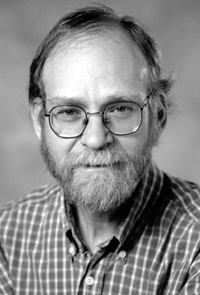 Joseph
Halpern
Joseph
Halpern
Professor
Codirector, Cognitive Studies Program
halpern@cs.cornell.edu
http://www.cs.cornell.edu/home/halpern/
Joseph Halpern received a Bs.C. in mathematics from the University of Toronto in 1975 and a Ph.D. in mathematics from Harvard in 1981. In between, he spent two years as the head of the mathematics department at Bawku Secondary School in Ghana. After a year as a visiting scientist at M.I.T., he joined the IBM Almaden Research Center in 1982, where he remained until 1996, also serving as a consulting professor at Stanford. In 1996, he joined CS at Cornell.
Halpern’s major research interests are in reasoning about knowledge and uncertainty, security, distributed computation, and decision theory. Together with his former student, Yoram Moses, he pioneered the approach of applying reasoning about knowledge to analyzing distributed protocols and multi-agent systems. He has coauthored five patents, a book, Reasoning About Knowledge, and over 200 technical publications.
Halpern is a Fellow of the AAAI. Among other awards, he received the Godel Prize in 1997, and was a Guggenheim Fellow and a Fulbright Fellow in 2001–02. Two of his papers have won best-paper prizes at International Joint Conferences on Artificial Intelligence (IJCAI). Many of his other papers were invited for special issues of journals. He serves as editor-in-chief of the Journal of the ACM and on several other editorial boards.
Selected Publications
“Knowledge and Common Knowledge in a Distributed Environment’’. Journal of the ACM 37(3) (1990): 549–587. (With Y. Moses)
“An Analysis of First-order Logics of Probability”. Artificial Intelligence 46(3) (1990): 311–350.
“Plausibility Measures and Default Reasoning”. Journal of the ACM 48(4) (2001): 648–685. (With N. Friedman)
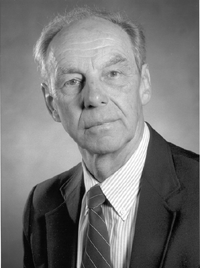 Juris
Hartmanis
Juris
Hartmanis
Emeritus
Walter R. Read Professor of Computer Science and Engineering
Turing Award Winner
jh@cs.cornell.edu
Juris Hartmanis obtained his Ph.D. from the California Institute of Technology in 1955. In 1965, he founded CS and was its first chairman. In 1993 he was awarded the Turing Award. In 2001, Hartmanis was a recipient of the Lielo Medalu, the Grand Medal of the Latvian Academy of Sciences.
Hartmanis is also the founder of the field of computational complexity theory. He believes that computational complexity, the study of the quantitative laws that govern computation, is an essential part of the science base needed to guide, harness, and exploit the explosively growing computer technology.
Professor Hartmanis’s current research interests focus on understanding the structure of computational complexity classes and exploring how to view computation as construction of complex objects and relate computational complexity to the complexity of constructed objects.
He is a member of the National Academy of Engineering; a foreign member of the Latvian Academy of Sciences; a Fellow of the American Academy of Arts and Sciences, the New York State Academy of Sciences, the American Association for the Advancement of Science, and ACM. He serves as editor of the Springer-Verlag Lecture Notes in Computer Science; Journal of Computer and Systems Sciences; and Fundamenta Informaticae.
Selected Publications
“On the Computational Complexity of Algorithms”. Transactions of the American Mathematical. Society 117(5) (May, 1965): 285–306. (With R. Stearns)
“On Isomorphisms and Density of NP and Other Complete Sets”. SIAM Journal on Computing 6 (June, 1977): 305–322. (With L. Berman)
“Generalized Kolmogorov Complexity and the Structure of Feasible Computations”. In Proceedings of the Twenty-fourth Annual Symposium on Foundations of Computer Science (November, 1983): 439–445.
 Mark
Heinrich
Mark
Heinrich
Assistant
Professor
Member of the School of Electrical and Computer Engineering
and the Graduate Field of Computer Science
heinrich@csl.cornell.edu
http://www.csl.cornell.edu/~heinrich/
Mark Heinrich is an assistant professor in ECE at Cornell, a cofounder of its Computer Systems Laboratory, and an IISI member.
His research interests include active memory and I/O systems, parallel computer architecture, system-area networks, novel computer architectures, embedded architectures, scalable cache-coherence protocols, multiprocessor design and simulation methodology, and hardware/software codesign.
He received his Ph.D. in electrical engineering from Stanford University under John Hennessy in 1998, where he was a principal designer of the FLASH multiprocessor. He was the author of FlashLite, the system-level simulator of the FLASH machine, as well as four cache-coherence protocols for FLASH. He also developed the first model for evaluating the effect of node-controller occupancy in distributed shared-memory machines.
He received his M.S. degree from Stanford in 1993, and his B.S.E. in electrical engineering and computer science from Duke University in 1991. Heinrich was also the cofounder and chief architect of Flashbase, Inc. an Internet company specializing in automated sweepstakes and database-backed forms and tools for customer acquisition. Flashbase was acquired by DoubleClick Inc. in May 2000.
Selected Publications
“Leveraging Cache Coherence in Active Memory Systems”. In Proceedings of the Sixteenth ICS (June, 2002). (With D. Kim and M. Chaudhuri)
“Active Memory Clusters: Efficient Multiprocessing on Commodity Clusters”. In Proceedings of the Fourth ISHPC, Lecture Notes in Computer Science 2327 (May, 2002): 78–92. (With E. Speight and M. Chaudhuri)
“FLASH vs. (Simulated) FLASH: Closing the Simulation Loop”. In Proceedings of the Ninth International Conference on Architectural Support for Programming Languages and Operating Systems (ASPLOS) (November, 2000): 49–58. (With J. Gibson, R. Kunz, D. Ofelt, M. Horowitz, and J. Hennessy)
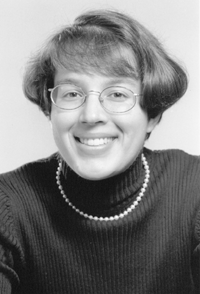 Sheila
S. Hemami
Sheila
S. Hemami
Associate
Professor
Member of the School of Electrical and Computer Engineering
and the Graduate Field of Computer Science
hemami@ece.cornell.edu
http://foulard.ece.cornell.edu/Shemami.html
Shelia S. Hemami received her B.S.E.E (1990) and M.S.E.E. (1992) degrees from the University of Michigan. She obtained her Ph.D. degree from Stanford University in 1994.
Her doctoral work comprised development of real-time, low-complexity lossy signal-processing techniques to provide reconstruction of image and video data lost in transmission over lossy packet networks. During her last year at Stanford, she was a member of the technical staff at Hewlett Packard Laboratories in Palo Alto, California. Upon completing her Ph.D., she joined the ECE faculty at Cornell, where she currently directs the Visual Communications Laboratory.
In 1997, she received a National Science Foundation Career Award. In 2000 she received the Eta Kappa Nu C. Holmes MacDonald Outstanding Teaching Award (a national award). In 2002, she was a finalist for the Eta Kappa Nu Outstanding Young Electrical Engineer Award. She is a member of the IEEE, Eta Kappa Nu, and Tau Beta Pi.
The emerging information superhighway provides an example of the flexibility required of image and video-compression and transmission techniques. Varying network capacities, differences in viewing devices, and a broad spectrum of user needs suggest the desirability of coding techniques that can efficiently span large quality and bandwidth ranges. Additionally, coded data must be robust to errors and loss of varying degrees across multiple network segments. For practicality, algorithms must be inexpensive to implement, in either hardware or software. Dr. Hemami’s research interests broadly concern such communication of visual information. Particular topics of interest include multirate video coding and transmission, compression specific to packet networks and other lossy networks, and psychovisual considerations.
Selected Publications
“Robust Image Communication over Wireless Channels”. IEEE Communications Magazine 39(11) (November, 2001): 120–124.
“Suprathreshold Wavelet Coefficient Quantization in Complex Stimuli: Psychophysical Evaluation and Analysis”. Journal of the Optical Society of America 18 (October, 2001): 2385–2397. (With M. Ramos)
“Spectrally Efficient Partitioning of MPEG Video Streams for Robust Transmission over Multiple Channels”. In Proceedings of the Twelfth International Packet Video Workshop (April, 2002). (With W. Xu)
 John
Hopcroft
John
Hopcroft
Professor
Turing Award Winner
jeh17@cornell.edu
http://www.cs.cornell.edu/jeh
Professor Hopcroft’s research centers on the study of information capture and access. This includes the study of large graphs, spectral analysis of structures, clustering, and queries. He has also been involved in the theoretical aspects of computing, especially analysis of algorithms, formal languages, automata theory, and graph algorithms. He has coauthored four books on formal languages and algorithms with Jeffrey D. Ullman and Alfred V. Aho.
From January 1994 until June 2001, he was the Joseph Silbert Dean of the College of Engineering. He was formerly the associate dean for college affairs and the Joseph C. Ford Professor of Computer Science. After receiving an M.S. (1962) and Ph.D. (1964) in electrical engineering from Stanford University, Professor Hopcroft spent three years on the faculty of Princeton University. In 1967, he joined the Cornell faculty, was named professor in 1972 and served as CS chairman from 1987 to 1992. An undergraduate alumnus of Seattle University, Hopcroft was honored with a Doctor of Humanities degree, Honoris Causa, in 1990.
Selected Publications
Formal Languages and Their Relation to Automata. Addison–Wesley (1969). (With J. Ullman)
“Efficient Planarity Testing”. Journal of the ACM, 21(4) (October, 1974): 549–568. (With R. Tarjan)
“A Paradigm for Robust Geometric Algorithms”. Algorithmica 7(4) (1992): 339–380. (With P. Kahn)
 Daniel
P. Huttenlocher
Daniel
P. Huttenlocher
John
P. and Rilla Neafsey Professor of Computing and Information Science and
Business
Cornell Weiss Presidential Fellow
CIS, joint with the Johnson Graduate School of Management
dph@cs.cornell.edu
http://www.cs.cornell.edu/~dph/
Dan Huttenlocher received a dual degree in computer science and experimental psychology from the University of Michigan in 1980, and master’s and Ph.D. degrees in computer science from M.I.T. in 1984 and 1988, respectively. He has been on the CS faculty since 1988. He currently holds a joint appointment with the Johnson Graduate School of Management at Cornell.
Huttenlocher’s research interests are in computer vision, computational geometry, electronic-collaboration tools, financial-trading systems, and the principles of software development. In addition to teaching and research, Dan has considerable experience managing software-development efforts in corporate and academic settings. He is chief technical officer of Intelligent Markets, a leading provider of advanced trading systems. He also spent more than ten years at the Xerox PARC, directing work that led to the ISO JBIG2 image-compression standard, and serving as part of the senior management team.
Huttenlocher has been recognized on several occasions for his teaching and research, including being named a Presidential Young Investigator by the NSF in 1990, the New York State Professor of the Year by CASE in 1993, and a Stephen H. Weiss Fellow by Cornell in 1996. He holds twenty-two U.S. patents and has published more than fifty technical papers, primarily in the areas of computer vision and computational geometry.
Selected Publications
“Comparing Images using the Hausdorff Distance”. IEEE Transactions on Pattern Analysis and Machine Intelligence 15(9) (1993): 850–863. (With G. Klanderman and W. Rucklidge)
“The Upper Envelope of Voronoi Surfaces and its Applications”. Discrete and Computational Geometry 9(3) (1993): 267–291. (With K. Kedem and M. Sharir)
“Recognizing Solid Objects by Alignment with an Image”. International Journal of Computer Vision 5(2) (1990): 195–212. (With S. Ullman)
 Thorsten
Joachims
Thorsten
Joachims
Assistant
Professor
tj@cs.cornell.edu
http://www.cs.cornell.edu/people/tj
Thorsten Joachims joined CS as an assistant professor in 2001. Earlier that year, he completed his dissertation, “The Maximum-Margin Approach to Learning Text Classifiers: Methods, Theory, and Algorithms” at the Universität Dortmund, Germany, advised by Katharina Morik.
His research interests center on a synthesis of theory and system building in the field of machine learning, with a focus on support-vector machines, text-mining, and machine learning in information access. In particular, Joachims has worked on WebWatcher, an adaptive-browsing assistant for the Web. He has authored the SVM-Light algorithm and software for support-vector learning. His most recent work is on learning from clickthrough data in search engines, and on using unlabeled data for supervised learning in the framework of transduction.
Joachims cotaught the course “Advanced Topics in Machine Learning” with Rich Caruana.
Joachims received the dissertation award of the Universität Dortmund, a Studienstiftung d. D. Volkes scholarship, and a Rotary stipend. He is member of the editorial board of the Journal of Machine Learning Research, and serves on the program committees of International Conference on Machine Learning (ICML), European Conference on Machine Learning (ECML), Special Interest Group on Information Retrieval (SIGIR), and others.
Selected Publications
Learning to Classify Text using Support Vector Machines, Kluwer (2002).
“Optimizing Search Engines Using Clickthrough Data”. ACM SIGKDD International Conference on Knowledge Discovery and Data Mining (KDD) (2002).
“Making Large-scale Support Vector Machine Learning Practical” In Advances in Kernel Methods Support Vector Learning, B. Schölkopf, C. Burges, and A. Smola (eds.), M.I.T. Press (1999): 169–184.
 Klara
Kedem
Klara
Kedem
Professor
kedem@cs.cornell.edu
http://www.cs.cornell.edu/kedem
Klara Kedem obtained her Ph.D. in computer science at Tel-Aviv University in 1989. She is currently spending the summers as a CS professor at Cornell and is the chair of the computer science department at Ben-Gurion University in Israel.
Professor Kedem’s research is in computational geometry with applications to robotics, computer vision, and bio-information. She is known for devising the minimum Hausdorff distance for shape matching, a robust method that has had a strong impact and is still being investigated actively.
Recently Professor Kedem and CS collaborators have looked into shape-comparison problems in the life sciences. In computational molecular biology, they have come up with a new metric, the unit-vector root mean square (URMS to measure substructure resemblance between proteins. This measure has been further applied to the analysis of molecular dynamics. Currently she is working on finding consensus shapes for protein families, and applying string-matching algorithms to protein-shape comparison.
Kedem is on the editorial board of the Journal of the Pattern Recognition Society, and serves as guest editor of Computational Geometry: Theory and Applications. She won the Mary Upson visiting professorship at Cornell for 1997–1998.
Selected Publications
“The Upper Envelope of Voronoi Surfaces and its Applications”. Discrete and Computational Geometry 9 (1993): 267–291. (With D. Huttenlocher and M. Sharir)
“Fast Detection of Geometric Substructure in Proteins”. Journal of Computational Biology 6(3–4) (1999): 313–325. (With L. Chew, D. Huttenlocher, and J. Kleinberg)
“Unit-vector RMS (URMS) as a Tool to Analyze Molecular Dynamics Trajectories”. Proteins: Structure, Function and Genetics 37 (1999): 554–564. (With L. Chew and R. Elber)
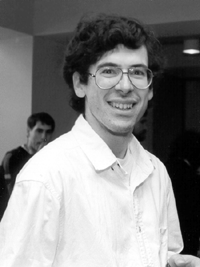 Jon
Kleinberg
Jon
Kleinberg
Associate
Professor
kleinber@cs.cornell.edu
http://www.cs.cornell.edu/home/kleinber/
Jon Kleinberg received his Ph.D. in computer science from M.I.T. in 1996. He subsequently spent a year as a visiting scientist at the IBM Almaden Research Center, and is now an associate professor in CS at Cornell.
Kleinberg’s research interests are centered around algorithms, particularly those concerned with the structure of networks and information. He focuses on combinatorial and randomized methods in the design of algorithms, with applications to information science, discrete optimization, data mining, and computational biology.
His work introduced the notion of network analysis based on hubs and authorities, a framework that has been incorporated into a number of prominent search tools on the Web.
Kleinberg is a recipient of an NSF Career Award, an ONR Young Investigator Award, an Alfred P. Sloan Foundation Fellowship, a David and Lucile Packard Foundation Fellowship, the Fiona Ip Li and Donald Li Teaching Award from the Cornell College of Engineering, and the 2001 National Academy of Sciences Award for Initiatives in Research. He also received the Association of Computer Science Undergraduates Faculty of the Year Award for 2001–2002.
Selected Publications
“Navigation in a Small World”. Nature 406 (2000): 845.
“Authoritative Sources in a Hyperlinked Environment”. Journal of the ACM 46(5) (1999): 604–632.
“Approximation Algorithms for Classification Problems with Pairwise Relationships: Metric Labeling and Markov Random Fields”. In Proceedings of the Fortieth IEEE Symposium on Foundations of Computer Science (1999). 14–23. (With E. Tardos)
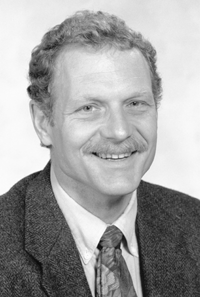 Dexter
Kozen
Dexter
Kozen
Joseph
Newton Pew, Jr. Professor of Engineering
kozen@cs.cornell.edu
http://www.cs.cornell.edu/kozen
Dexter Kozen received his undergraduate degree in mathematics from Dartmouth College in 1974 and his Ph.D. in computer science from Cornell in 1977. After working as a research staff member at the IBM Thomas J. Watson Research Center for several years, he returned to Ithaca to join the Cornell faculty in 1985.
Kozen’s research interests include the design and analysis of algorithms, computation-complexity theory, the complexity of decision problems in logic and algebra, and logics and semantics of programming languages. He is currently involved in a research project involving efficient code certification and its application to malicious firmware. His most recent theoretical project is the development of the theory of Kleene algebra and Kleene algebra with tests, including results on complexity, deductive completeness, expressiveness, and applications to compiler correctness. He developed and taught a new course on this topic in spring 2002. Dexter is the author of three books.
Professor Kozen received the Stephen and Margery Russell Distinguished Teaching Award from Cornell’s College of Arts and Sciences in 2001 and was named the Williams College Class of 1960 Scholar in 2000. He is also a recipient of an IBM Outstanding Innovation Award and a former Guggenheim fellow.
Selected Publications
“Results on the Propositional mu-calculus”. Theoretical Computer Science 27 (1983): 333–354.
“Kleene Algebra with Tests”. Transactions on Programming Languages and Systems, (May, 1997): 427–443.
Dynamic Logic. M.I.T. Press (2000). (With D. Harel and J. Tiuryn)
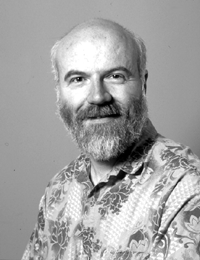 Dean
Krafft
Dean
Krafft
Senior
Research Associate
Director of Computing Facilities
dean@cs.cornell.edu
http://www.cs.cornell.edu/dean
Dean Krafft received his Ph.D. in computer science from Cornell in 1981. He serves as both a CS researcher and administrator at Cornell. As an administrator, he manages the Computing Facilities Support group and worries about a number of issues including computer security, networking, and building Web services. Most recently, he has been working with a campus-wide task force on network-usage charging. The goal is to develop a new, fair, and appropriate charging scheme for network usage at Cornell.
On the research side, Krafft is part of the Cornell Digital Libraries Research Group (CDLRG—http://www.cs.cornell.edu/cdlrg). A major focus of the CDRLG effort is on interoperability issues for digital libraries. As part of that broader thrust, Krafft is a coprincipal investigator on the NSF–funded National Science Digital Library Project at Cornell (http://www.nsdl.org). Krafft’s own particular interests focus on ensuring the availability in the digital world of pre-digital published and manuscript materials, as well as related issues on copyright, the public domain, and public access to older and out-of-print materials.
Selected Publications
“Core Services
in the Architecture of the National Digital Library for Science Education
(NSDL)”. In Proceedings of the Second ACM/IEEE–CS Joint Conference on Digital Libraries (July, 2002). (With Carl Lagoze,
et al.) http://arxiv.org/abs/cs.DL/0201025
“Dienst: Building a Production Technical Report Server”. In Advances in Digital Libraries (May, 1995): 211–223. (With J. Davis and C. Lagoze)
“The Challenge of Robotics for Computer Science”. Advances in Robotics, Algorithmic and Geometric Aspects of Robotics 1 (1986): 7–42. J. Schwartz and C. Yap, eds. Lawrence Erlbaum Associates, Inc. (With J. Hopcroft)
 Christoph
Kreitz
Christoph
Kreitz
Senior
Research Associate
kreitz@cs.cornell.edu
http://www.cs.cornell.edu/home/kreitz
Christoph Kreitz obtained his Ph.D. in computer science at the FernUniversität Hagen, Germany in 1984. His research has focused on computational models for infinite objects and on the application of automated theorem-proving to the design, verification, and optimization of software systems.
In collaboration with researchers of Robert Constable’s Nuprl and Ken Birman’s Ensemble groups he has built logic-based tools that automatically improve the code of fault-tolerant communication systems and guarantee that the improvements do not introduce errors. He has also developed techniques for the formal design and verification of adaptive distributed systems. He currently investigates the validation of real-time schedules in self-adaptive stream computation networks.
Christoph Kreitz also works on enhancing the automatic reasoning capabilities of tactical theorem provers. Together with his former students from the Technical University of Darmstadt, he has developed and implemented proof-search procedures for classical intuitionistic, modal, and fragments of linear logic, and algorithms that transform the machine-found proofs into the proof calculus of other systems. His theorem prover JProver has been connected to the interactive proof assistants Nuprl, MetaPRL, and Coq, and is being used to guide the development of proofs in these systems.
Selected Publications
“Theory of Representations”. Theoretical Computer Science 38 (1985): 35–53. (With K. Weihrauch)
“Building Reliable, High-performance Systems from Components”. In Proceedings of the Seventeenth ACM Symposium on Operating System Principles (SOSP ’99), Operating Systems Review 34(5) (December 1999): 80–92. (With X. Liu, R. van Renesse, J. Hickey, M. Hayden, K. Birman, and R. Constable)
“Connection-based Theorem Proving in Classical and Non-classical Logics”. Journal for Universal Computer Science 5(3) (1999): 88–112. (With J. Otten)
 Carl
Lagoze
Carl
Lagoze
Senior
Research Associate
lagoze@cs.cornell.edu
http://www.cs.cornell.edu/lagoze/lagoze.html
Carl Lagoze obtained his master’s degree in software engineering from Wang Institute for Graduate Studies in 1987. He is currently a senior research associate in CIS. He is concurrently Director of Technology of the NSF–funded National Science Digital Library (NSDL).
Lagoze’s research investigates policies, organization, and architecture of distributed-information spaces. The Web provides the backdrop for the work. The goal is to understand the services and organization that can be built on top of this global information base to increase its functionality, integrity, and ease-of-use. The research is undertaken with the recognition that any proposed solutions must balance the economy and speed of automated solutions against the often-irreplaceable expertise that comes from human intervention.
Lagoze’s research group is recognized for a number of advances in distributed-information systems. These include the Dienst architecture for distributed digital libraries, the FEDORA digital-object model for complex digital content, and the Open Archives Initiative Protocol for Metadata Harvesting that has been widely adopted as a foundation for information-systems interoperability. His technical leadership of the NSDL provides the opportunity to realize these advances in a major national resource for science and mathematics education.
Selected Publications
“Core Services in the Architecture of the National Digital Library for Science Education (NSDL)”. Joint Conference on Digital Libraries (July, 2002). (With W. Arms, S. Gan, D. Hillmann, C. Ingram, D. Krafft, R. Marisa, J. Phipps, J. Saylor, C. Terrizzi, W. Hoehn, D. Millman, J. Allan, S. Guzman-Lara, and T. Kalt) http://arxiv.org/abs/cs.DL/0201025.
“The Open Archives Initiative Protocol for Metadata Harvesting”. Protocol Version 2 (June, 2002). (With H. Van de Sompel, M. Nelson, and S. Warner) http://www.openarchives.org/OAI/2.0/openarchivesprotocol.htm
“The ABC Ontology and Model”. Journal of Digital Information 2(2) (November, 2001): 18 p. (With J. Hunter)
Lillian
Lee
Assistant
Professor
llee@cs.cornell.edu
http://www.cs.cornell.edu/home/llee/
Lillian Lee (A.B., Cornell, 1993; Ph.D., Harvard University, 1997) is an assistant professor in CS. Her main research interest is natural-language processing, in particular the development of ``knowledge-lean’’ statistical methods that allow computers to automatically learn linguistic and domain knowledge directly from text. A major focus has been the study of distributional similarity and distributional clustering. She and her colleagues have also considered applications ranging from finding word boundaries in streams of Japanese to creating English versions of computer-generated mathematical proofs.
Lee is a recipient of an Alfred P. Sloan Research Fellowship and the Cornell College of Engineering’s Stephen and Marilyn Miles Excellence in Teaching Award. Her professional activities include serving as the program chair of the annual Conference on Empirical Methods in Natural Language Processing, an area chair for the Annual Meeting of the Association for Computational Linguistics, a member of the editorial boards of the journals Computational Linguistics and Machine Learning, and a member of the executive board of SIGDAT, the ACL Special Interest Group on Linguistic Data and Corpus-based Approaches.
Selected Publications
“Fast Context-free Grammar Parsing Requires Fast Boolean Matrix Multiplication”. Journal of the ACM 49(1) (2002): 1–15.
“Iterative Residual Rescaling: An Analysis and Generalization of LSI”. In Proceedings of the Twenty-fourth Annual International Conference on Research and Development in Information Retrieval (SIGIR) (2001): 154–162. (With R. Ando)
“Distributional Clustering of English Words”. In Proceedings of the Thirty-first Annual Meeting of the ACL (1993): 183–190. (With F. Pereira and N. Tishby)
 Yuying
Li
Yuying
Li
Senior
Research Associate
yuying@cs.cornell.edu
http://www.cs.cornell.edu/home/yuying/yuying.html
Yuying Li obtained a bachelor’s degree in applied mathematics at the Sichuan University in China in 1982, and an Ph.D in computer science at the University of Waterloo in 1988. She has been a research associate in CS since.
Li’s research interests include numerical optimization and scientific computation. In addition, she is interested in the application of optimization methods to medical, engineering, and financial problems.
Her current interest has focused on solving problems in financial applications, e.g., volatility estimation, discrete hedging, portfolio compression, and portfolio optimization under different risk measures.
Li is the recipient of the 1993 First Prize of the Sixth Fox Prize Competition in Numerical Analysis, Oxford, England.
Selected Publications
“Dynamic Hedging with a Deterministic Local Volatility Function Model”. The Journal of Risk 4(1) (2001): 64–90.
“An Interior, Trust Region Approach for Nonlinear Minimization Subject to Bounds”. SIAM Journal on Optimization 6(2) (1996): 418–445. (With T. Coleman)
Large-scale Numerical Optimization. SIAM, Philadelphia (1990). (With T. Coleman)
 Hod
Lipson
Hod
Lipson
Assistant
Professor
CIS, joint with Mechanical and Aerospace Engineering
hl274@cornell.edu
http://www.mae.cornell.edu/lipson
Hod Lipson joined the Faculty of CIS and the faculty of the Sibley School of Mechanical and Aerospace Engineering in 2001 as an assistant professor. Prior to this appointment, he was a postdoctoral researcher at Brandeis University’s computer science department, working on evolutionary computation and evolutionary robotics, where he led the Golem Project—creating the first physical artificial life forms. He was also a lecturer in M.I.T.’s mechanical-engineering department, where he taught design and conducted research in design automation.
Professor Lipson’s Ph.D. (Technion, 1998) research was on the reconstruction of a three-dimensional object from a single freehand sketch, as a means for human–computer interaction for CAD. Before joining academia, Lipson spent several years as a design engineer in the mechanical, electronic, and software industries, and cofounded two currently-active companies.
Lipson’s research interests are in the area of computational synthesis: How do we combine basic building blocks to achieve some high-level functionality? He is interested in understanding the synthesis process of design and emulating it computationally, and he focuses on the ideas of self-organization and self-replication as new paradigms of fully automated design, fabrication, and learning. Primary questions concern automatic discovery of modules, regular and hierarchical composition, and automatic abstraction of functionality. Cornell’s computational-synthesis group develops both new theoretical ideas and applies them to various engineering problems, from evolutionary robotics and structures to circuits and game players. Lipson believes that fully automated synthesis holds the key to future competitiveness, and presents a largely unaddressed challenge across engineering, biology, and AI.
Among the awards and honors Lipson has received are: TIME Magazine’s Annual 2001 “Shaping the Future” Award, EXPO ’2000; and the CIRP International F. W. Taylor Medal in 1997.
Selected Publications
“Correlation-based Reconstruction of a 3D Object from a Single Freehand Sketch”. AAAI 2002 Spring Symposium on Sketch Understanding (2002): 99–104. (With M. Shpitalni)
“Uncontrolled Engineering: A Review of Evolutionary Robotics”. Artificial Life 7(4) (2001): 419–424.
“Automatic Design and Manufacture of Robotic Lifeforms”. Nature 406 (2000): 974–978. (With J. Pollack)
 Rajit
Manohar
Rajit
Manohar
Assistant
Professor
Member of the School of Electrical and Computer Engineering
and the Graduate Field of Computer Science
rajit@csl.cornell.edu
http://vlsi.cornell.edu/~rajit/
Rajit Manohar obtained his B.S. (1994), M.S. (1995) and Ph.D. (1998) degrees in computer science from the California Institute of Technology. He is currently an assistant professor in ECE, and a member of the graduate fields of computer science and applied mathematics. The focus of his research effort is on the design of efficient computation structures. His group is currently working on the following:
The LEAP project develops new energy-efficient and high-performance architectures that do not use any clock signals for their operation. The NoC project (joint with Professor Lang Tong) has demonstrated that asynchronous circuit techniques applied to wireless network modeling can provide three-orders-of-magnitude increase in simulation speed, compared to traditional approaches.
Professor Manohar received the NSF Career Award (2000–2004), the Cornell IEEE Teacher of the Year Award (2001), the College of Engineering Sonny Yau Excellence in Teaching Award (2001), and the Tau Beta Pi and Cornell Society of Engineers Excellence in Teaching Award (2000).
Selected Publications
“Network on a Chip: Modeling Wireless Networks with Asynchronous VLSI”. IEEE Communications Magazine 39(11) (November, 2001). (With Clinton Kelly IV)
“Width-adaptive Data Word Architectures”. In Proceedings of the Nineteenth Conference on Advanced Research in VLSI (March, 2001): 112–129.
“Slack Elasticity in Concurrent Computing”. In Proceedings of the Fourth International Conference on the Mathematics of Program Construction, Lecture Notes in Computer Science 1422 (June, 1998): 272–285. Springer-Verlag. (With A. Martin)
 Jeanna
Neefe Matthews
Jeanna
Neefe Matthews
Assistant
Professor
jnm@csl.cornell.edu
http://www.cs.cornell.edu/info/people/jnm/
Jeanna Matthews obtained her Ph.D. in computer science at the University of California at Berkeley in 2000. She is currently an assistant professor in CS. Matthews’ research lies in the areas of operating systems, storage systems, and networks. She is actively involved in several projects aimed at integrating hands-on exposure to research results into computer science courses.
Selected Publications
“Improving the Performance of Log-structured File Systems with Adaptive Methods”. In Proceedings of the Sixteenth ACM Symposium on Operating System Principles (October, 1997): 238–251. (With D. Roselli, A. Costello, R. Wang, and T. Anderson)
“Serverless Network File Systems”. In Proceedings of the ACM Symposium on Computer Systems (February, 1996). (With T. Anderson, M. Dahlin, D. Patterson, D. Roselli, and R. Wang)
“Serverless Network File Systems”. (Award paper) Proceedings of the Fifteenth ACM Symposium on Operating System Principles (December, 1995): 109–126. (With T. Anderson, M. Dahlin, D. Patterson, D. Roselli and R. Wang)
 Greg
Morrisett
Greg
Morrisett
Associate
Professor
jgm@cs.cornell.edu
http://www.cs.cornell.edu/home/jgm
Greg Morrisett obtained his Ph.D. in computer science from Carnegie Mellon University in 1995. He is currently an associate professor in CS at Cornell.
Morrisett’s research focuses on programming-language design, implementation, and semantics. He is particularly interested in the emerging area of language-based security. He is best known for the development of TAL and Certifying Compilation. These are important mechanisms that can be used to automatically verify an important class of safety properties for machine code. More recently, Morrisett has concentrated on type systems for legacy software. His Cyclone project provides type safety for C code without sacrificing control over data structures, calling conventions, or memory management. Other projects include work on run-time code specialization, type-safe reflection, type-based alias analysis, region-based memory management, and in-lined reference monitors.
Morrisett is an editor for the Journal of Functional Programming, and an associate editor for ACM Transactions on Programming Languages and Systems. In 2000, he was given a Presidential Early Career Award for Scientists and Engineers. He is also a recipient of a Sloan Foundation Fellowship, an NSF Career Award, and the Allen Newell Medal of Research Excellence.
Selected Publications
“Syntactic Type Abstraction”. In ACM Transactions on Programming Languages and Systems 22(6) (November, 2000): 1037–1080. (With D. Grossman and S. Zdancewic)
“From System F to Typed Assembly Language”. In ACM Transactions on Programming Languages and Systems 21(3) (May, 1999): 528–569. (With D. Walker, K. Crary, and N. Glew)
“TIL: A Type-directed, Optimizing Compiler for ML”. In Proceedings of the ACM SIGPLAN ’96 Conference on Programming Language Design and Implementation (May, 1996): 181–192. (With D. Tarditi, P. Cheng, C. Stone, R. Harper, and P. Lee)
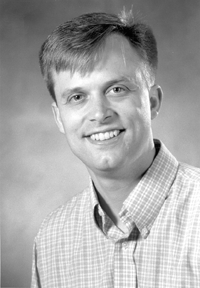 Andrew
Myers
Andrew
Myers
Assistant
Professor
andru@cs.cornell.edu
http://www.cs.cornell.edu/andru
Andrew Myers received his Ph.D. in computer science from M.I.T. in 1999. He is currently an assistant professor in CS. Myers is particularly interested in using language-level information to improve security guarantees, performance, and transparency for distributed systems and mobile code.
A current focus is on the protection of confidential data, a problem that is gaining importance in our connected world. Methods are needed for building practical systems while guaranteeing that they enforce strong security properties. Myers has developed novel and efficient static-analysis techniques to identify and control privacy violations in complex programs. These techniques have been employed in the Jif compiler and run-time system for writing secure programs. Jif has been applied to distributed systems containing untrusted components, and to systems in which security requirements change dynamically.
Myers received the Alfred P. Sloan Research Fellowship and a National Science Foundation Career award in 2001.
Selected Publications
“Untrusted Hosts and Confidentiality: Secure Program Partitioning”. In Proceedings of the Eighteenth ACM SOSP (October, 2001): 1–14. (With S. Zdancewic, L. Zheng, and N. Nystrom)
“Robust Declassification”. In Proceedings of the Fourteenth IEEE Computer Security Foundations Workshop (June, 2001): 15–23. (With S. Zdancewic)
“Protecting Privacy using the Decentralized Label Model”. ACM Transactions on Software Engineering and Methodology 9(4) (October, 2000): 410–442. (With B. Liskov)
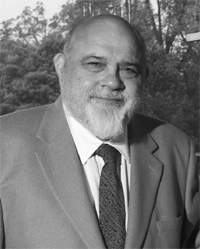 Anil
Nerode
Anil
Nerode
Goldwin Smith Professor of Mathematics
Member of the Graduate Field of Computer Science
anil@math.cornell.edu
http://www.math.cornell.edu/~anil/
Anil Nerode obtained his Ph.D. in mathematics, under Saunders MacLane, from the University of Chicago in 1956. He was a NSF postdoctoral fellow with Kurt Godel, at the Institute for Advanced Study, from 1957–58; visiting assistant professor with Alfred Tarski at the University of California at Berkeley from 1958–59; was brought to Cornell by J. Barkley Rosser in 1959; appointed professor in 1965; and named Goldwin Smith Professor in 1990. He served as chair of the Department of Mathematics from 1982–87, and was director of the Mathematical Sciences Institute from 1987–1996. He also served as director of the Center for Foundations of Intelligent Systems from 1996–2001.
Nerode’s research areas include mathematical logic, computability theory, recursive mathematics, nonstandard logics, nonmonotonic logics, AI, applied mathematics, control theory, hybrid systems, and complex system design.
Selected Publications
Foreword in Ghosh, S. Modeling and Asynchronous Distributed Simulation: Analyzing Complex Systems (2000). IEEE Press.
[in preparation] Constructive Logics and Lambda Calculi: 500 p. (With G. Odifreddi)
[in press] Automata Theory and Its Applications: 480 p. (With B. Khoussainov)
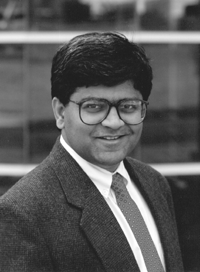 Keshav
Pingali
Keshav
Pingali
Professor
pingali@cs.cornell.edu
http://www.cs.cornell.edu/info/projects/Bernoulli/
Keshav Pingali obtained a bachelor’s degree in electrical engineering at the Indian Institute of Technology (I.I.T.), Kanpur in 1978, and an Sc.D. in computer science at M.I.T. in 1986. Since 1986, he has been on the CS faculty where he is currently a full professor. Pingali is also an ECE faculty member.
Pingali’s research has focused on programming languages and compiler technology for program understanding, restructuring, and optimization. His group is known for its contributions to memory-hierarchy optimization; some of these have been patented. Algorithms and tools developed by his projects are used in many commercial products such as Intel®’s IA-64 compiler, SGI’s MIPSPro compiler, and Hewlett–Packard’s PA-RISC compiler. In his current research, he is investigating language-based fault-tolerance, and highly adaptive software systems for large-scale simulations.
Among other awards, Pingali has won the President’s Gold Medal at I.I.T., Kanpur (1978), IBM Faculty Development award (1986–87), NSF Presidential Young Investigator award (1989–94), Ip-Lee teaching award of the College of Engineering at Cornell (1997), and the Russell teaching award of the College of Arts and Sciences at Cornell (1998). In 2000, he was a visiting professor at I.I.T., Kanpur where he held the Rama Rao Chaired Professorship.
Selected Publications
“Optimal Control Dependence Computation and the Roman Chariots Problem”. ACM Transactions on Programming Languages and Systems (May, 1997): 462–491. (With G. Bilardi)
“Data-centric Transformations for Locality Enhancement”. International Journal of Parallel Programming 29(3) (June, 2001): 319–364. (With I. Kodukula)
“Fractal Symbolic Analysis”. International Conference on Supercomputing (June, 2001): 38–49. (With N. Mateev and V. Menon)
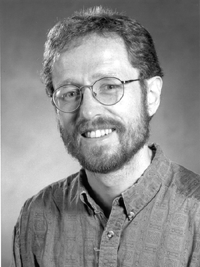 Robbert
van Renesse
Robbert
van Renesse
Senior
Research Associate
rvr@cs.cornell.edu
http://www.cs.cornell.edu/home/rvr/
Robbert van Renesse received his M.Sc. in mathematics and computer science from the Vrije Universiteit in 1985, under the supervision of Andrew S. Tanenbaum, with the honorary addendum cum laude. He obtained his Ph.D. in computer science from the Vrije Universiteit in 1989, also under the supervision of Professor Tanenbaum.
His research focus is in large-scale, self-organizing network protocols and distributed applications. Currently, he is involved in four projects. First, the Astrolabe system is a peer-to-peer implementation of a DNS–like directory service that supports on-the-fly aggregation of resource information. It incorporates epidemic algorithms to ensure robustness and efficiency, and is used among others to build scalable multicast protocols. This is joint work with Ken Birman and Werner Vogels. Second, the MediaNet system is a distributed multimedia facility that supports user-specified adaptation. This is joint work with Mike Hicks, Bob Constable, Mark Bickford, Lori Lorigo, and Christoph Kreitz. Third, with Lidong Zhou and Mike Marsh, he is developing an implementation of IPv6 as an overlay network, using distributed hash tables and Astrolabe. Fourth, with Fred Schneider and Visiting Professor Dag Johansen, he is investigating techniques for filtering high volume–event streams.
In addition to his current research, van Renesse is the vice-president of Reliable Network Solutions. Inc., a start-up company that develops software for critical applications. He is also a technical advisor for Fast Search and Transfer, ASA, a company that develops search engines. With M. Hayden, he is the author of two patents: “Method and System for Optimizing Layered Communication Protocols”, and “Method and System for Masking the Overhead of Protocol Layering”.
Selected Publications
“Optimizing Buffer Management for Reliable Multicast”. In International Conference on Dependable Systems and Networks (June, 2002). (With Z. Xiao, and K. Birman)
“Fighting Fire with Fire: using Randomized Gossip to Combat Stochastic Scalability Limits”. Journal Quality and Reliability Engineering International: Secure, Reliable Computer and Network Systems 18(3) (May/June, 2002): 165–184.
“Scalable Management and Data Mining using Astrolabe”. In First International Workshop on Peer-to-Peer Systems (March, 2002). (With K. Birman)
 Mats
Rooth
Mats
Rooth
Professor
CIS, joint with Linguistics
rooth@cs.cornell.edu
http://www.people.cornell.edu/pages/mr249/
Mats Rooth’s research is concerned with theories and applications in linguistics and computational linguistics, which combine theoretical–linguistic formalisms, knowledge, and problem statements with numerical modeling and parameter-estimation techniques. Using current methodology, it is possible to create approximately complete grammars of human languages, and using parsing algorithms and the grammars, to map sentences to representations that represent their syntax and meaning. However, sentences of human languages are very ambiguous, to the extent that it would be possible know everything about the syntax of a language, without having any operative means of identifying the intended syntax and meaning of the sentences that people use. This problem is addressed by numerical models that put weights on possible representations. Numerical models and optimization algorithms also allow linguistic information (in particular, syntactic and semantic properties of individual words) to be learned from large data samples.
Rooth, whose appointment is joint with the Department of Linguistics and the Faculty of CIS, also works on the semantics of natural language, using logical methods and formalisms. He developed an approach to the meaning of intonation, which is known as alternative semantics. Currently, he is working on interactions between the grammar of ellipsis and the grammar of intonation.
Rooth has a B.S. degree in mathematics from M.I.T., and a Ph.D. in linguistics from the University of Massachusetts at Amherst. Before joining the Cornell faculty, he was chair of theoretical computational linguistics at the University of Stuttgart, and member of the technical staff at AT&T Bell Laboratories.
Selected Publications
“A Theory of Focus Interpretation”. Natural Language Semantics 1 (1992): 75–116.
“Inside–outside Estimation of a Lexicalized PCFG for German”. In Proceedings of the Thirty-seventh Annual Meeting of the Association for Computational Linguistics (1999). (With F. Beil, G. Carroll, D. Prescher, and S. Riezler)
“Parse Forest Computation of Expected Governors”. In Proceedings of the Thirty-ninth Annual Meeting of the Association for Computational Linguistics (2001): 458–465. (With H. Schmid)
 Radu
Rugina
Radu
Rugina
Assistant
Professor
rugina@cs.cornell.edu
http://www.cs.cornell.edu/people/rugina/
Radu Rugina received a bachelor’s degree in computer science from the University Politechnica of Bucharest in 1996, and a Ph.D. degree in computer science from the University of California at Santa Barbara in 2001. Between 1997 and 2001 he was a visiting scholar at the Laboratory for Computer Science at M.I.T..
His research interests lie in the area of programming languages and compiler support for program understanding, maintaining, and debugging; for checking safety properties of programs; and for program transformations and optimizations. Rugina has developed program-analysis techniques capable of analyzing memory accesses in recursive and multithreaded programs that heavily manipulate pointers. Concrete results of these analyses include automatic parallelization of sophisticated divide-and-conquer problems, static detection of array-bounds violations, and data-race detection in multithreaded programs that use pointers and pointer arithmetic.
In his current research, he is investigating program-analysis approaches to improve software reliability and security, by automating the process of checking the properties required to guarantee the functionality and safety of programs.
Selected Publications
“Design-driven Compilation”. In Proceedings of the Tenth International Conference on Compiler Construction (April, 2001). (With M. Rinard)
“Symbolic Bounds Analysis of Pointers, Array Indices, and Accessed Memory Regions”. In Proceedings of the ACM SIGPLAN 2000 Conference on Programming Languages Design and Implementation (June, 2000). (With M. Rinard)
“Pointer Analysis for Multithreaded Programs”. In Proceedings of the ACM SIGPLAN 1999 Conference on Programming Languages Design and Implementation (May, 1999): 77–90. (With M. Rinard)
 Fred
B. Schneider
Fred
B. Schneider
Professor
Director, Information Assurance Institute
fbs@cs.cornell.edu
http://www.cs.cornell.edu/fbs/
Fred B. Schneider has studied concurrent and distributed systems since joining Cornell’s faculty in 1978. His early work concerned programming methodology and formal methods. He is known for formalizing “safety” and “liveness” properties as well as for developing methods to reason about concurrent and distributed programs. His work in fault-tolerant distributed systems led to now well-known protocols and structures (including the “failstop processor” abstraction, a seminal survey on the state machine approach, hypervisor-based fault tolerance, and various protocols used in today’s air-traffic–control systems).
Most recently, Schneider’s attention has turned to questions related to computer security:
• exploiting insights from formal methods and programming languages as a basis for relocating trust and enforcing application-specific security policies; and
• the design of systems and protocols to support both fault-tolerance and security in distributed systems.
Both of these efforts have led to practical new tools. For example, Schneider and collaborators are currently building a third-generation inlined reference monitor suite (targeted to Microsoft’s CLR) to better understand practical problems with enforcing fine-grained security policies through rewriting object-code. Work also continues with collaborators on the COCA (Cornell On-line Certification Authority) project, with attention now focused on implementing secure and scalable publish/subscribe protocols.
Selected Publications
On Concurrent Programming. (1997): 473 p.
Trust in Cyberspace. (ed.) National Academy Press (December, 1998): 331 p.
“Enforceable Security Policies”. ACM Transactions on Information and System Security 3(1) (February, 2000): 30–50.
 David
I. Schwartz
David
I. Schwartz
Assistant
Professor
dis@cs.cornell.edu
http://www.cs.cornell.edu/dis/
David I. Schwartz obtained his Ph.D. in civil engineering at the State University of New York at Buffalo in 1999. He is currently an assistant professor in CS.
Schwartz’s research and interests involve educational technology, the support of undergraduate research, textbook writing, and graduate-student development. With the support of a Faculty Innovation in Teaching Grant award, he began the design of a cooperative computer lab to improve the learning environment for all courses at Cornell.
Schwartz leads a multidisciplinary team that is working on technology and infrastructure to merge traditional cooperative learning with computer technology. He also commenced a large-scale undergraduate design project to entice students to develop a cooperative computer game that encourages women and underrepresented minorities to enter the field of computer science.
He has conducted other research projects in developing course-management and scheduling software, networking, operating systems, and syllabus design for a new course in C#. Toward the end of the academic year, he began development of his third textbook, which will be an introductory book on programming in Java.
Selected Publications
Introduction to UNIX. Prentice Hall: New Jersey (1999).
Introduction to Maple. Prentice Hall: New Jersey (1999).
“A Constraint-based Approach for Qualitative Matrix Structural Analysis”. Artificial Intelligence for Engineering Design, Analysis and Manufacturing 9 (1995): 23–36. (With S. Chen)
 Bart
Selman
Bart
Selman
Associate
Professor
selman@cs.cornell.edu
http://www.cs.cornell.edu/home/selman/
Bart Selman obtained a Ph.D. in computer science from the University of Toronto in 1991. Currently an associate professor in CS, he spent the previous six years at AT&T Bell Laboratories in the principles of artificial intelligence–research department. His research has covered many areas in artificial intelligence and computer science, including tractable inference, knowledge representation, stochastic search methods, theory approximation, knowledge compilation, planning, default reasoning, and the connections between computer science and statistical physics (phase-transition phenomena). His current projects focus on planning, multi-agent systems, and the integration of learning and reasoning techniques.
Bart Selman has received an NSF Career Award (1998–2002) and an Alfred P. Sloan Research Fellowship (1999–2001). He has received four best paper awards at the American and Canadian national artificial-intelligence conferences, and at the International Conference on Knowledge Representation.
Selected Publications
“Heavy-tailed Phenomena in Satisfiability and Constraint Satisfaction Problems”. Journal of Automated Reasoning 24(1/2) (2000): 67–100. (With C. Gomes, N. Crato, and H. Kautz)
“Determining Computational Complexity from Characteristic Phase Transitions”. Nature 400(8) (1999): 133–137. (With R. Monasson, R. Zecchina, S. Kirkpatrick, and L. Troyansky)
“Knowledge Compilation and Theory Approximation”. Journal of the ACM 43(2) (1996): 193–224. (With H. Kautz)
 Phoebe
Sengers
Phoebe
Sengers
Assistant
Professor
CIS, joint with Science and Technology Studies
sengers@cs.cornell.edu
http://www.cs.cornell.edu/people/sengers/
Phoebe Sengers received her Ph.D. in artificial intelligence and cultural theory in 1998 from Carnegie Mellon University. She was a Fulbright Scholar at the Center for Art and Media Technology (ZKM) in Karlsruhe, Germany, and spent two years as a research scientist at the German National Research Center for Information Technology (GMD). She joined the Faculty of CIS in October, 2001, and has a joint appointment with the Department of Science and Technology Studies.
Sengers works in human–computer interaction, especially problems that bridge cultural issues and technology design. She has worked extensively in autonomous agents and avatars, including emotional computing. Her current research focuses on the development of technologies to work against negative trends in consumer culture, especially overconsumption and environmental damage. As part of this project, she is developing Web search–tools that encourage awareness of the ideological perspectives of information found on the Web. She is also developing everyday computing devices, which support awareness of problems in consumer culture and encourage alternative perspectives on everyday life. She works on the National Research Council’s Committee on Information Technology and Creativity, which develops policy suggestions for interdisciplinary research in information technology and the arts, humanities, and other creative areas.
Selected Publications
“The Enigmatics of Affect”. Conference on Designing Interactive Systems (June, 2002). (With R. Liesendahl, W. Magar, C. Seibert, B. Müller, T. Joachims, W. Geng, P. Mårtensson, and K. Höök)
“Practices for Machine Culture: A Case Study of Integrating Artificial Intelligence and Cultural Theory”. Surfaces 8 (1999).
“Designing Comprehensible Agents”. In Proceedings of the Sixteenth International Joint Conference on Artificial Intelligence (August, 1999): 1227–1232.
 Jayavel
Shanmugasundaram
Jayavel
Shanmugasundaram
Assistant
Professor
jai@cs.cornell.edu
http://www.cs.cornell.edu/people/jai
Jayavel Shanmugasundaram
obtained his Ph.D. degree in computer science from the University of Wisconsin
at Madison in 2001. He is currently an assistant professor in CS.
Shanmugasundaram’s research interests include Internet data management, information retrieval, and query processing in emerging system architectures. His research group is currently working on three projects. The XML data management project aims to integrate the database and the information-retrieval worlds by building a next-generation data-management system for handling both structured and unstructured data. The Deep Glue project develops a platform for integrating and querying database-backed Internet data sources, also referred to as the “deep web”. The Pepper project (joint with Johannes Gehrke and Emin Gün Sirer) develops highly robust indexing and query-processing strategies for evaluating complex queries over large-scale, distributed peer-to-peer systems.
Shanmugasundaram’s research ideas have been incorporated in commercial data-management products, and have resulted in several patents.
Professor Shanmugasundaram was a recipient of an IBM Faculty Award in 2002.
Selected Publications
“Querying XML Views of Relational Data”. In Proceedings of the Conference on Very Large Data Bases (2001): 261–270. (With J. Kiernan, E. Shekita, C. Fan, and J. Funderburk)
“Relational Databases for Querying XML Documents: Limitations and Opportunities”. In Proceedings of the Conference on Very Large Data Bases (1999): 302–314. (With K. Tufte, C. Zhang, G. He, D. DeWitt, and J. Naughton)
“Efficient Concurrency Control for Broadcast Environments”. In Proceedings of the ACM SIGMOD Conference on Management of Data (1999). (With A. Nithrakashyap, R. Sivasankaran, and K. Ramamritham)
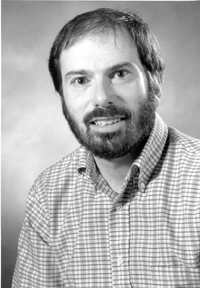 David
B. Shmoys
David
B. Shmoys
Professor
Member of the School of Operations Research and Industrial Engineering
and the Graduate Field of Computer Science
shmoys@cs.cornell.edu
http://www.cs.cornell.edu/home/shmoys/shmoys.html
David Shmoys obtained his Ph.D. in computer science at the University of California at Berkeley in 1984. He has faculty appointments in both CS and the School of Operations Research and Industrial Engineering. Shmoys’ research has focused on the design and analysis of efficient algorithms for discrete optimization problems.
His work has highlighted the central role that linear programming plays in the design of approximation algorithms for NP–hard problems. In particular, he is known for his results on scheduling and clustering problems, including the first constant-performance guarantees for several problems central to the literature, including the k-center and k-median problems, the generalized-assignment problem, as well as scheduling problems in which the aim is to minimize the average job-completion time. Furthermore, his work on polynomial-time approximation schemes for scheduling problems introduced techniques that have subsequently been applied to a variety of other settings. His current work includes the application of discrete optimization techniques to several issues in computational biology.
Professor Shmoys is a Fellow of the ACM, and is the recipient of a National Science Foundation Presidential Young Investigator’s Award and the Cornell College of Engineering Sonny Yau Excellence in Teaching Award (twice). He is currently editor-in-chief of SIAM Journal on Discrete Mathematics, and on the editorial board of several other journals, including SIAM Journal on Computing, and Mathematics of Operations Research.
Selected Publications
“Using Dual Approximation Algorithms for Scheduling Problems: Theoretical and Practical Results”. Journal of the ACM 34(1) (1987): 144–162. (With D. Hochbaum)
“Fast Approximation Algorithms for Fractional Packing and Covering Problems’’. Mathematics of Operations Research 20: 257–301 (1995). (With S. Plotkin and E. Tardos).
“Scheduling to Minimize the Average Completion Time: On-line and Off-line Approximation Algorithms”. Mathematics of Operations Research 22 (1997): 513–544. (With L. Hall, A. Schulz, and J. Wein)
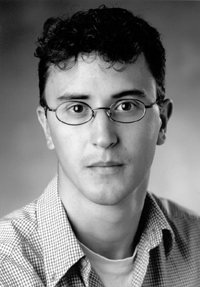 Emin
Gün Sirer
Emin
Gün Sirer
Assistant
Professor
egs@cornell.edu
http://www.cs.cornell.edu/people/egs/
Emin Gün Sirer obtained his Ph.D. from the University of Washington in 2002. His research interests span operating systems, networking, distributed systems, and ubiquitous computing, with recent emphasis on ad hoc networks, peer-to-peer systems, and secure network services.
Professor Sirer is currently involved in four projects. The MagnetOS project investigates operating-system support for ad hoc and sensor networks. Specifically, Sirer’s group is designing and building a new operating system that improves the longevity and reliability of ad hoc networks through energy-aware, adaptive object migration, multipath route selection, and novel hybrid routing protocols. The CliqueNet project is a peer-to-peer, self-organizing system for anonymous communication that provides an information-theoretic guarantee of privacy. The Pepper system, with Professors Gehrke and Shanmugasundaram, examines peer-to-peer data-location techniques for ubiquitous computers. Finally, the WebGuard project investigates how to build secure Web services.
Sirer’s past work on the SPIN and Kimera projects examined novel operating-system architectures. The SPIN kernel developed the techniques for safely extending operating systems with application-specific code. The Kimera system introduced a new virtual-machine architecture that enables Java systems of drastically higher manageability, security, and performance, while reducing their resource requirements. The techniques developed in the Kimera project have been adopted throughout the industry, including Hewlett–Packard, Microsoft, Sun, and Schlumberger Inc.
Selected Publications
“Path-set Selection in Mobile Ad Hoc Networks”. In Proceedings of the Third ACM International Symposium on Mobile Ad Hoc Networking and Computing (2002). (With P. Papadimitratos and Z. Haas)
“On the Need for System-level Support for Ad hoc and Sensor Networks”. ACM Operating Systems Review 36(2) (April, 2002): 1–5. (With R. Barr, J. Bicket, D. Dantas, B. Du, T. Kim, and B. Zhou)
“Design and Implementation of a Distributed Virtual Machine for Networked Computers. In Proceedings of the Seventeenth Symposium on Operating Systems Principles (December, 1999): 202–216. (With R. Grimm, A. Gregory, and B. Bershad)
 Evan
Speight
Evan
Speight
Assistant
Professor
Member of the School of Electrical and Computer Engineering
and the Graduate Field of Computer Science
espeight@csl.cornell.edu
http://www-ds.csl.cornell.edu/~espeight/
Evan Speight obtained his Ph.D. in electrical engineering at Rice University in 1998. Speight is an assistant professor in ECE, and is a field member of CS. His research interests include distributed and parallel computing, computer architecture, and affinity-directed mobility in mobile computing environments.
Speight’s current projects include Active Memory Clusters (joint work with Professor Mark Heinrich), which seeks to leverage the increased functionality of a programmable memory controller to provide hardware-distributed shared-memory performance from commodity clusters. The Delphi project (joint work with Professor Martin Burtscher) explores the benefits of utilizing value-prediction techniques borrowed from the architectural community in improving the performance of cluster-based shared-memory multiprocessors. The Tern project represents work on examining the possible performance and fault-tolerant benefits of thread migration between hosts in an MPI parallel-runtime environment. Finally, the Bifrost project (joint work with Professor John Bennett at the University of Colorado at Boulder and sponsored by Microsoft) provides a framework for mobile computing that relies on “affinity” to automatically direct application and data throughout a wide geographic region for optimal user access.
Selected Publications
“Delphi: Prediction-based Page Prefetching to Improve the Performance of Shared Virtual Memory Systems”. In Proceedings of the International Conference on Parallel and Distributed Processing Techniques and Applications (June, 2002). (With M. Burtscher)
“Active Memory Clusters: Efficient Multiprocessing on Commodity Clusters”. In Proceedings of the Fourth International Symposium on High Performance Computing, Lecture Notes in Computer Science 2327 (May, 2002): 78–92 (With M. Heinrich and M. Chaudhuri)
“Using Multicast and Multithreading to Reduce Communication in Software DSM Systems. In Proceedings of the Fourth Symposium on HPCA (1998): 312–323. (With J. Bennett)
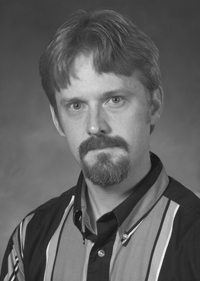 Paul
Stodghill
Paul
Stodghill
Research
Associate
stodghil@cs.cornell.edu
http://www.cs.cornell.edu/stodghil/
Paul Stodghill obtained his bachelor’s degree in mathematics and computer science from Dickinson College in 1988. He obtained his Ph.D. in computer science from Cornell in 1997. Since 1997, he has been a post-doctoral research associate and research associate in CS.
Stodghill’s research interest is in program transformations and program synthesis for computational-science applications. An example of this is the work that he has done on sparse compilers with Keshav Pingali. He also works closely with a number of computational scientists to develop novel, high-performance scientific applications. Currently, he is developing fault-tolerant support for parallel applications and infrastructure for deploying scientific simulations as Web services.
Selected Publications
“Post-cluster Computing and the Next Generation of Scientific Applications”. In Sixth World Multiconference on Systemics, Cybernetics and Informatics (July, 2002). (With G. Heber and D. Lifka)
“A Framework for Sparse Matrix Code Synthesis from High-level Specifications”. In Supercomputing 2000 (November, 2000). (With N. Ahmed, N. Mateev, and K. Pingali)
“A Relational Approach to the Compilation of Sparse Matrix Programs.” EuroPar 1997: 318–327. (With V. Kotlyar and K. Pingali)
 Éva
Tardos
Éva
Tardos
Professor
eva@cs.cornell.edu
http://www.cs.cornell.edu/home/eva/eva.html
Éva Tardos received her Ph.D. at the Eötvös University in Budapest, Hungary in 1984. After teaching at Eötvös and the M.I.T., she joined Cornell in 1989. She is currently a full professor in CS. She is a member of the American Academy of Arts and Sciences, an ACM Fellow, was a Guggenheim Fellow, a David and Lucille Packard Fellow in Science and Engineering, a Sloan Fellow; a Presidential Young Investigator; and has received the Fulkerson Prize in 1988 (awarded jointly by the American Mathematical Society and the Mathematical Programming Society for a paper in discrete mathematics). She is the editor of several journals.
Tardos’s research interest focuses on the design and analysis of efficient methods for combinatorial-optimization problems on graphs or networks. Such problems arise in many applications such as vision, and the design, maintenance, and management of communication networks. She is mostly interested in fast combinatorial algorithms that provide provably optimal or close-to-optimal results. She is most known for her work on network-flow algorithms, approximation algorithms for network flows, cut, and clustering problems. Her recent work focuses on algorithmic game theory, an emerging new area of designing systems and algorithms for selfish users.
Selected Publications
“How Bad is Selfish Routing?” Journal of the ACM, 49(2) (2002): 236–259. (With T. Roughgarden)
“Approximation Algorithms for Classification Problems with Pair-wise Relationships: Metric Labeling and Markov Random Fields”. In Proceedings of the Fortieth Annual IEEE Symposium on the Foundations of Computer Science (November, 1999): 14–23. (With J. Kleinberg)
“A Strongly Polynomial Minimum Cost Circulation Algorithm”. Combinatorica 5(3) (1985): 247–255.
 Tim
Teitelbaum
Tim
Teitelbaum
Associate
Professor
tt@cs.cornell.edu
http://www.cs.cornell.edu/info/people/tt/tim_teitelbaum.html
Tim Teitelbaum received a B.S. in mathematics from the Massachusetts Institute of Technology in 1964, and his Ph.D. in computer science from Carnegie Mellon University in 1975.
His research is concerned with the use of fine-grain dependence graphs for specification, development, and analysis of software and hardware systems. The objective is a new generation of tools that provide precise and complete information about the structure of complex systems. He is working to improve the performance and functionality of generic dependence-graph technology, and also exploring the use of the technology in various application domains, including software development, maintenance and reengineering of legacy code, test-data generation, security-assurance and safety-assurance inspection, and semantic interference checking in configuration-management systems.
Teitelbaum’s earlier work on programming environments and incremental computation resulted in the Cornell Program Synthesizer and the Synthesizer Generator, two of the earliest systems to have demonstrated the viability of integrated language-based programming environments and syntax-directed editors.
He is a cofounder and chairman of GrammaTech, Inc., and a panelist for the National Science Foundation.
Selected Publications
“The Cornell Program Synthesizer: A Syntax-directed Programming Environment”. Communications of the ACM 24(9) (September, 1981): 563–573. (With T. Reps)
“Incremental Context-dependent Analysis for Language-based Editors”. ACM Transactions on Programming Languages and Systems (TOPLAS) 5(3) (July, 1983): 49–477 (With T. Reps and A. Demers)
“Systematic Derivation of Incremental Programs”. Science of Computer Programming 24(1) (1995): 1–39. (With Y. Liu)
 Charles
Van Loan
Charles
Van Loan
Joseph
C. Ford Professor of Engineering
Chair, CS
cv@cs.cornell.edu
http://www.cs.cornell.edu/cv/
Charles Van Loan received his Ph.D. in mathematics from the University of Michigan in 1973. After being a postdoctoral research fellow at the University of Manchester, he joined CS as an assistant professor in 1975.
Professor Van Loan works in the matrix-computation field, specializing in least-squares and eigenvalue problems that arise in control engineering and signal processing. Block-matrix computations are a current interest with a special emphasis on novel algorithms that exploit Kronecker-product structure. Kronecker products are increasingly important because of the role that they play in fast transforms and various multilinear applications.
Professor Van Loan is the author of five textbooks: Matrix Computations (with G. H. Golub), Computational Frameworks for the Fast Fourier Transform, Introduction to Scientific Computation—A Matrix Vector Approach Using Matlab, Introduction to Computational Science and Mathematics, and Handbook for Matrix Computations (with T. Coleman).
Selected Publications
“An Analysis of the Total Least Squares Problem”. SIAM Journal on Numerical Analysis 17(1980): 883–893. (With G. Golub)
“The WY Representation for Products of Householder Transformations”. SIAM Journal of Scientific and Statistical Computing 8 (1987): s2–s13 (1987). (With C. Bischof)
“The Ubiquitous Kronecker Product”. Journal of Computational and Applied Mathematics 123 (2000): 85–100.
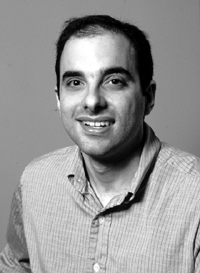 Stephen
A. Vavasis
Stephen
A. Vavasis
Professor
vavasis@cs.cornell.edu
http://www.cs.cornell.edu/home/vavasis
Stephen Vavasis received his Ph.D. in computer science from Stanford University in 1989. Since then, he has taught at Cornell where he is currently a full professor. He has also held summer and sabbatical research positions at Sandia National Laboratories, RIACS, Xerox PARC, Bell Labs, and Argonne National Laboratory.
Vavasis’s research centers on scientific computing. He is known for bridging the gap between theory and practice in numerical algorithms. His contributions include the first provably good mesh generator for three-dimensional finite-element analysis (with former student S. Mitchell, now at Sandia), the first interior-point method for linear programming whose polynomial running time does not depend on the objective function or constraint right-hand side (with Y. Ye of Stanford), and guaranteed-quality geometric mesh partitioning (with Miller, Teng, and Thurston). More recently (with former student G. Jonsson, now at deCode), he has developed the first resultant-based algorithm for solving polynomial equations with provable accuracy guarantees.
Since coming to Cornell, Vavasis has received a Presidential Young Investigator Award (1990–1995), a Guggenheim Fellowship (1996–1997), and an Ip-Lee Teaching Award (1999).
Selected Publications
“A Primal-dual Interior Point Method Whose Running Time Depends Only on the Constraint Matrix”. Mathematical Programming 74 (1996): 79–120. (With Y. Ye)
“Geometric Separators for Finite–Element Meshes”. SIAM Journal of Scientific Computing 19 (1998): 364–386. (With G. Miller, S.–H. Teng, and W. Thurston)
“Quality Mesh Generation in Higher Dimensions”. SIAM Journal of Computing 29 (2000): 1334–1370. (With S. Mitchell)
 Werner
Vogels
Werner
Vogels
Research
Associate
vogels@cs.cornell.edu
http://www.cs.cornell.edu/vogels
Werner Vogels obtained his Ingenieur Hogere Informatica degree in 1989 from the Haagse Hogeschool in The Hague, The Netherlands. After a number of years as a researcher in various European Esprit projects he joined CS in 1994, where he is now a research associate.
Vogels’ research interest is in communication technologies for scalable distributed systems, with a focus on the interaction between applications, operating systems and network protocols, and in the design of high-performance run-time systems for advanced distributed operations on cluster-computing systems. He is a principal investigator in the Spinglass project, where in collaboration with Ken Birman and Robbert van Renesse, he works on the development of a new generation of high-scalable reliable network protocols based on the principles of epidemic information dissemination. He also leads the Galaxy project, which focuses on the distributed-systems needs of enterprise cluster-computing systems, in particular providing practical solutions to the scalability problems that arise in these systems.
Selected Publications
“An Overview of the Galaxy Management Framework for Scalable Enterprise Cluster Computing”. In Proceedings of the IEEE International Conference on Cluster Computing: Cluster–2000 (December, 2000). (With D. Dumitriu)
“File System Usage in Windows NT 4.0”. In Proceedings of the Seventeenth ACM Symposium on Operating Systems Principles (December, 1999).
“U-Net: A User-level Network Interface for Parallel and Distributed Computing”. In Proceedings of the Fifteenth ACM Symposium on Operating Systems Principles (December, 1995). (With T. von Eicken, A. Basu, and V. Buch)
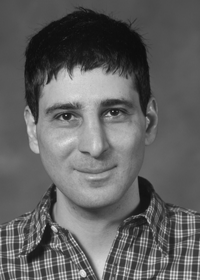 Golan
Yona
Golan
Yona
Assistant
Professor
golan@cs.cornell.edu
http://www.cs.cornell.edu/golan
Golan Yona obtained a bachelor’s degree (honor program) in physics and mathematics, and Ph.D. in computer science at the Hebrew University of Jerusalem in 1999. He was a Burroughs–Welcome postdoctoral fellow in computational molecular biology at Stanford University from 1998 until 2000.
Yona’s research focuses on computational molecular biology, with an emphasis on developing tools and methodologies for large-scale analysis of the protein universe. The goal of his research is to explore high-order organization and obtain a global view of the protein space. The global view is expected to yield valuable insights about the nature and function of new genes and can lead to the discovery of global principles in the protein space.
Yona’s research is rooted in two different disciplines, computer science and molecular biology, and is related to fields of intensive research in both. It incorporates study and development of methods for metric embedding, unsupervised learning techniques, efficient graph algorithms, parallel applications, and efficient database management. On the computational biology side it is involved with development of new algorithms and approaches for protein comparison, statistical models of protein families, and study of the mapping from sequences to structures. A great emphasis is on developing novel machine-learning–based techniques, both in the context of the study of the protein space, and as general-purpose tools. His study so far resulted in two large databases that are being used by biologists to study new genes, ProtoMap (http://protomap.cornell.edu) and BioSpace (http://biospace.cornell.edu).
Professor Yona is recipient of a National Science Foundation Career Award (2002).
Selected Publications
“Towards a Complete Map of the Protein Space based on a Unified Sequence and Structure Analysis of all Known Proteins”. In Proceedings of ISMB 2000: 395–406, AAAI Press. (With M. Levitt)
“ProtoMap: Automatic Classification of Protein Sequences, a Hierarchy of Protein Families, and Local Maps of the Protein Space”. Proteins: Structure, Function and Genetics 37 (1999): 360–378. (With N. Linial and M. Linial)
“Global Self Organization of all Known Protein Sequences reveals Inherent Biological Signatures”. Journal of Molecular Biology 268 (1997): 539–556 (With M. Linial, N, Linial, and N. Tishby)
 Ramin
Zabih
Ramin
Zabih
Associate
Professor
rdz@cornell.edu
http://www.cs.cornell.edu/rdz/
Ramin Zabih received undergraduate degrees in computer science and in mathematics from the Massachusetts Institute of Technology, and a Ph.D. in computer science from Stanford University in 1994. He joined CS in 1994, and was promoted to associate professor in 2001. In 2001, he was also given a joint appointment in the Department of Radiology at Cornell’s Joan and Sanford I. Weill Medical College.
Zabih’s research interests are in computer vision and its applications, especially in medical imaging. He is best known for the work his group has done in applying combinatorial-optimization methods, such as graph cuts, to computer-vision problems. He is currently supervising several Ph.D. students who are working on applying such methods to the automated analysis of magnetic resonance imagery. He has also done extensive consulting for Microsoft, where his work had a major impact on Internet Explorer.
He received the Abraham Wong teaching award from the College of Engineering in 1995. In 2002 he received the best paper award at the European Conference in Computer Vision.
Selected Publications
“Fast Approximate Energy Minimization via Graph Cuts”. IEEE Transactions on Pattern Analysis and Machine Intelligence 23(11) (November, 2001): 122–1239. (With Y. Boykov and O. Veksler)
“Color-spatial Indexing and Applications”. International Journal of Computer Vision 35(3) (1999): 245–268. (With J. Huang, S. Kumar, M. Mitra, and W.-J. Zhu)
“Non-parametric Local Transforms for Computing Visual Correspondence”. In Proceedings of the Third European Conference on Computer Vision 94 (May, 1994): 151–158. (With J. Woodfill)